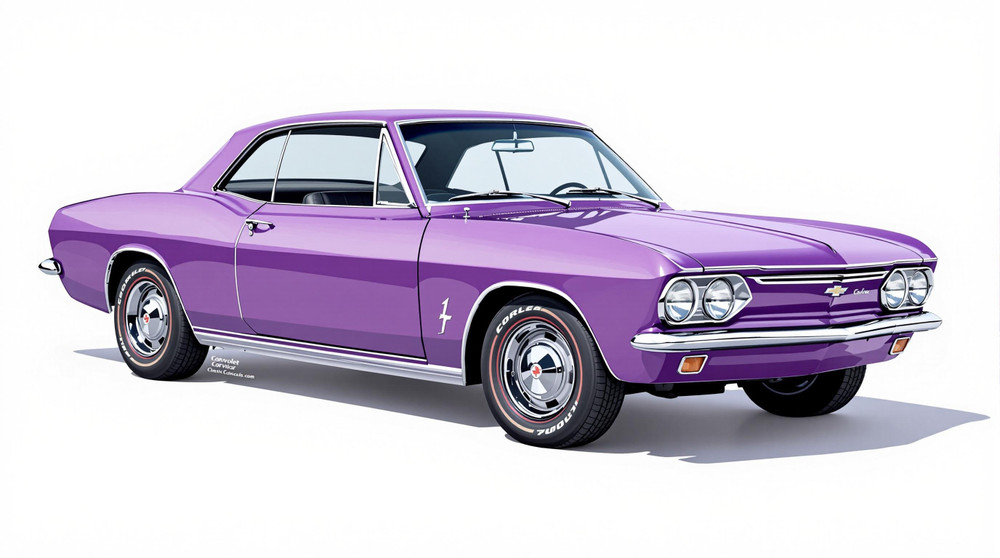Image of 1964 Chevrolet Corvair, Note: These illustrations use artistic license and may differ from actual historical models.
Performance Metrics
Fundamental Metrics
Emotional Appeal
MMP Rating
| Engine Specifications | |
|---|---|
| Engine Options: | Flat-6 |
| Displacement Range: | 2.3L - 2.7L |
| Horsepower Range: | 95-180 HP |
| Torque: | 122-232 lb-ft |
| Compression Ratio: | 8.0:1 - 9.0:1 |
| Ignition System: | Distributor |
| Cooling System: | Air-cooled |
| Performance Specifications | |
| 0-60 Time: | 10-12 seconds |
| 1/4 Mile Time: | 17-19 seconds |
| Top Speed: | 105 mph |
| Transmission and Drive | |
| Drive Type: | Rear-wheel drive |
| Transmission Type: | 3-speed automatic, 4-speed manual |
| Fuel and Efficiency | |
| Fuel System Type: | Carburetor |
| MPG: | 20-25 mpg |
| Dimensions and Brakes | |
| Brakes: | Drum brakes |
| Wheelbase: | 108.0 inches |
| Weight: | 2,400-2,800 lbs |
Note: Specifications for classic cars are given to the best of our ability, considering the limited and variant data available.
Unveiling the 1964 Chevrolet Corvair: An American Classic
The year 1964 marked a significant milestone for Chevrolet with the introduction of the second-generation Corvair, a vehicle that would become an emblem of innovation and controversy. Born from the fervor of post-war America's automotive boom, the Corvair emerged as Chevrolet's answer to the growing demand for compact cars. With its air-cooled, rear-mounted engine, the Corvair broke away from traditional American car design and carved out a unique niche in automotive history. Notably, it became a centerpiece in Ralph Nader's landmark book "Unsafe at Any Speed," which both criticized its safety and inadvertently immortalized its name.
Design and Innovation
The 1964 Chevrolet Corvair boasted a sleek, aerodynamic silhouette that was a departure from the bulky contours of its contemporaries. Its clean lines and subtle curves exuded a European flair that captivated the American public. Inside, passengers were greeted with a spacious cabin, adorned with durable materials and simple yet elegant instrumentation. The Corvair's technological advancements were ahead of their time, featuring an independent suspension system that was rare for American cars of that era. Color options for the '64 Corvair ranged from conservative to vibrant, with shades like Azure Aqua and Ember Red catching buyers' eyes. Among the various body styles available—the coupe, sedan, convertible, and even van—the Monza coupe stood out as an icon of style and desirability.
Historical Significance
The Corvair's legacy is one of boldness and innovation. It was one of the first mass-produced American cars to feature a rear-mounted engine—a layout more commonly associated with European sports cars—and its unibody construction was also groundbreaking for Chevrolet at the time. The Corvair's design influenced not only other compact cars but also future generations of vehicles that embraced its unconventional approach.
Performance and Handling
Performance-wise, the 1964 Corvair was no slouch. Its air-cooled flat-six engine delivered smooth power, propelling the car to respectable top speeds for its class. Acceleration from 0-60 mph was achieved in a leisurely but adequate timeframe compared to modern standards. On winding roads or when navigating through city traffic, drivers appreciated the car's nimble handling and responsive steering. Behind the wheel, one could hear the distinctive hum of its rear-mounted engine—a sound that still resonates with classic car enthusiasts today.
Ownership Experience
The Corvair was versatile: an everyday commuter for some, a stylish weekend cruiser for others, and even a competitive racer in certain circles. Maintenance was relatively straightforward due to its simple mechanical layout, making it accessible for DIY enthusiasts. However, reliability could be a mixed bag; early models faced criticism over handling issues which were largely addressed by 1964 with improved suspension design.
Fun Facts
Throughout its production years, the Corvair spawned some unique variants such as the turbocharged Corsa and the Greenbrier van. Celebrity owners added to its allure; renowned auto enthusiast Jay Leno is known to have one in his collection. While it never set speed records, it did break new ground in design and engineering for Chevrolet.
Collector's Information
Today, a well-preserved 1964 Chevrolet Corvair can fetch anywhere from $10,000 to $30,000 depending on condition and model rarity—with convertibles generally commanding higher prices. It is estimated that over 200,000 units were produced that year alone. As interest in vintage automobiles grows, values for these unique classics have been steadily appreciating.
Conclusion
The 1964 Chevrolet Corvair stands as a testament to an era when automotive design dared to defy convention. It remains a beloved piece of Americana that continues to captivate collectors and enthusiasts alike. Whether admired for its bold engineering or cherished for its nostalgic charm, the Corvair is undeniably an integral part of America's automotive tapestry.
1964 Chevrolet Corvair Catalog of Parts
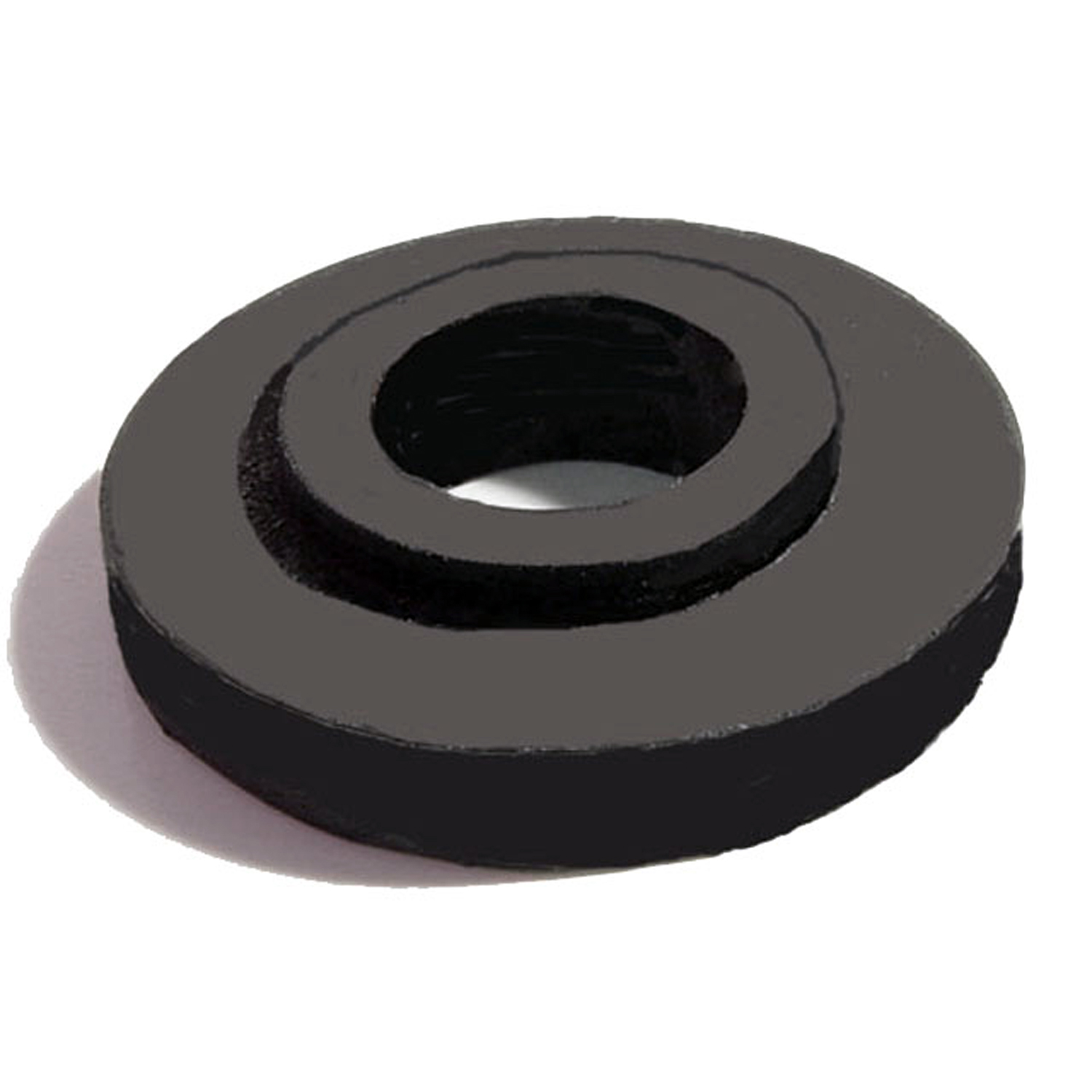 1964 Chevrolet Corvair Generator Anti-Vibration Cushion. Each-AV 1Generator Anti-Vibration Cushion. Each
1964 Chevrolet Corvair Generator Anti-Vibration Cushion. Each-AV 1Generator Anti-Vibration Cushion. Each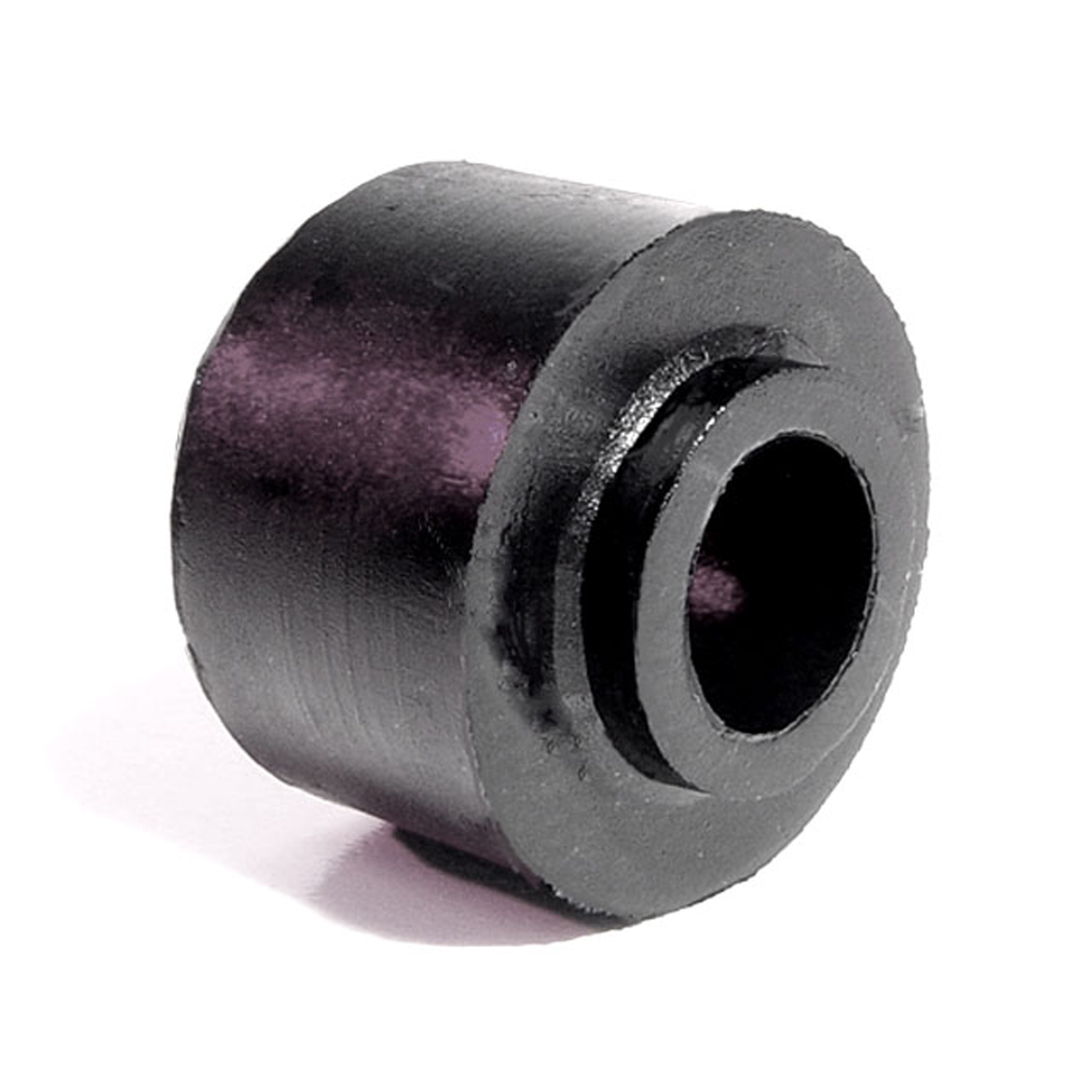 1964 Chevrolet Corvair Shock Absorber Grommet. 1" bottom O.D., 3/4" high-BN 1Shock Absorber Grommet. 1" bottom O.D., 3/4" high., with 7/16" I.D. Each
1964 Chevrolet Corvair Shock Absorber Grommet. 1" bottom O.D., 3/4" high-BN 1Shock Absorber Grommet. 1" bottom O.D., 3/4" high., with 7/16" I.D. Each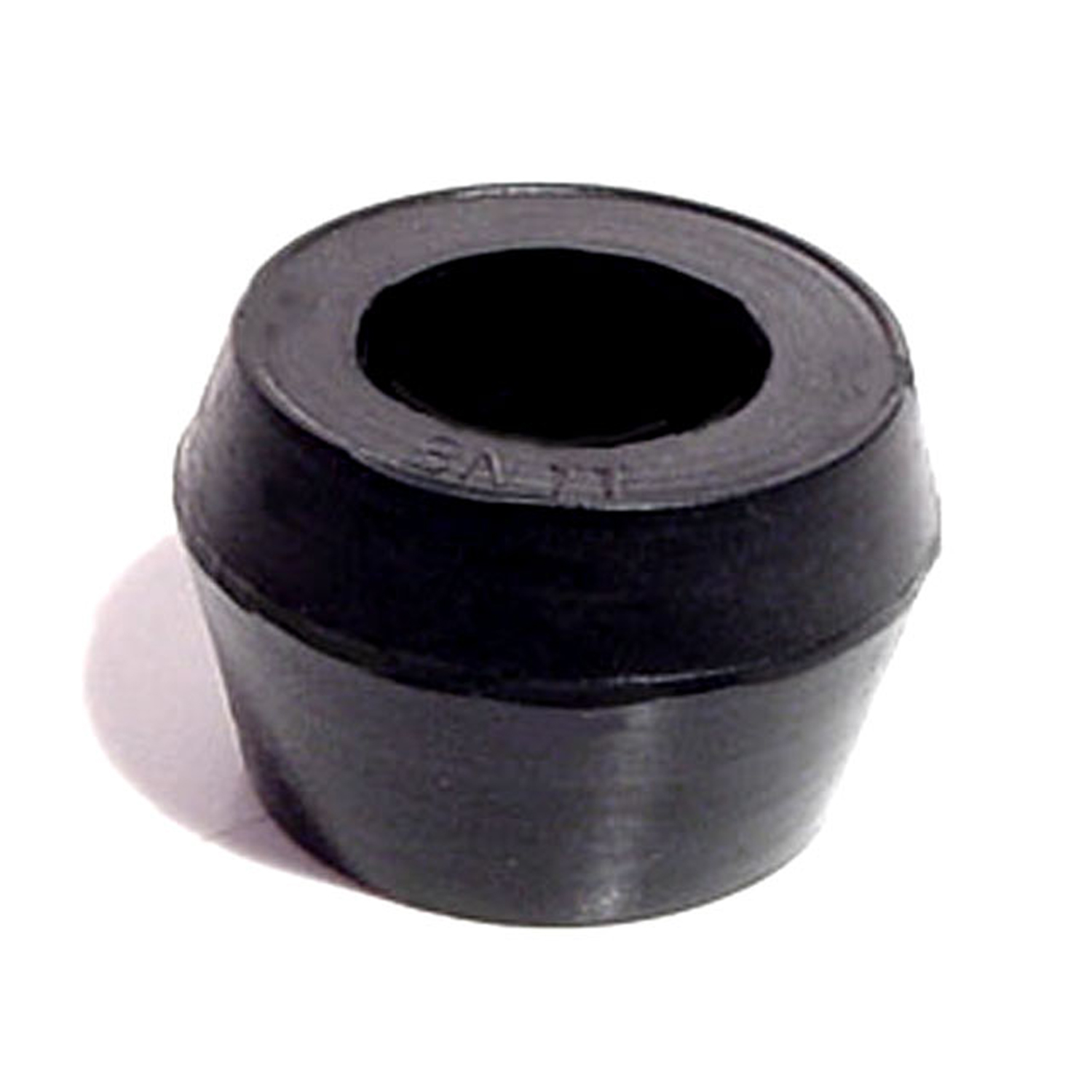 1964 Chevrolet Corvair Shock Absorber Grommet. 1" bottom O.D-BN 11Shock Absorber Grommet. 1" bottom O.D., 3/4" high, with 5/8" I.D. Each
1964 Chevrolet Corvair Shock Absorber Grommet. 1" bottom O.D-BN 11Shock Absorber Grommet. 1" bottom O.D., 3/4" high, with 5/8" I.D. Each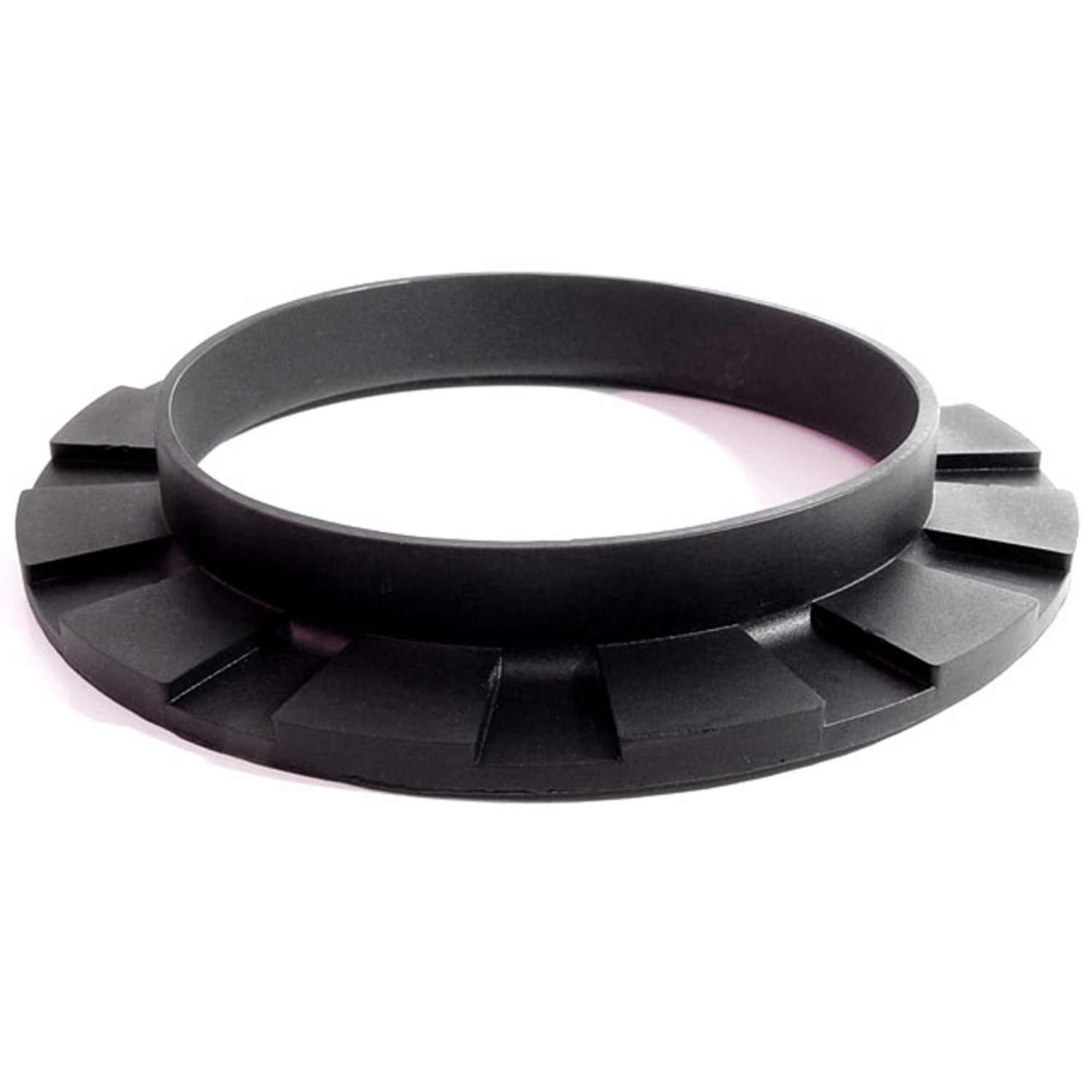 1964 Chevrolet Corvair Front coil-spring insulator-BN 110Front coil-spring insulator. Fits '41-'60 Oldsmobile and '50-'83 GM passenger models. 5-3/8 in. OD x 3-3/4 in. ID x 3/4 in. high with 13/16 in. wide bottom flange 1/4" thick, 12 flutes. Each.
1964 Chevrolet Corvair Front coil-spring insulator-BN 110Front coil-spring insulator. Fits '41-'60 Oldsmobile and '50-'83 GM passenger models. 5-3/8 in. OD x 3-3/4 in. ID x 3/4 in. high with 13/16 in. wide bottom flange 1/4" thick, 12 flutes. Each.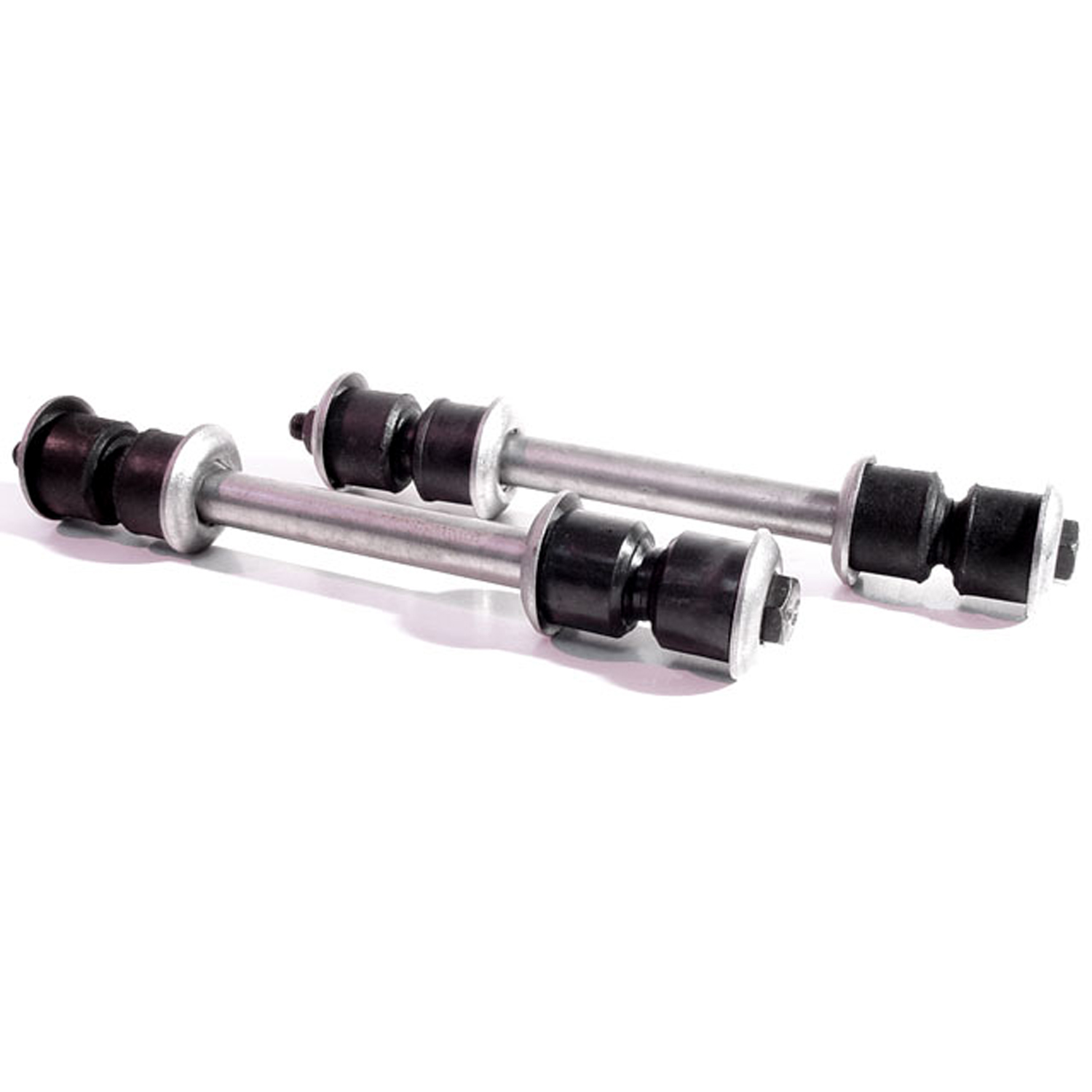 1964 Chevrolet Corvair Front Stabilizer End Repair Kit-BNK 20Front Stabilizer End Repair Kit. 22-piece set for two stabilizer bars. Contains all rubber bushings, washers, bolts and nuts, enough for one front end. Set
1964 Chevrolet Corvair Front Stabilizer End Repair Kit-BNK 20Front Stabilizer End Repair Kit. 22-piece set for two stabilizer bars. Contains all rubber bushings, washers, bolts and nuts, enough for one front end. Set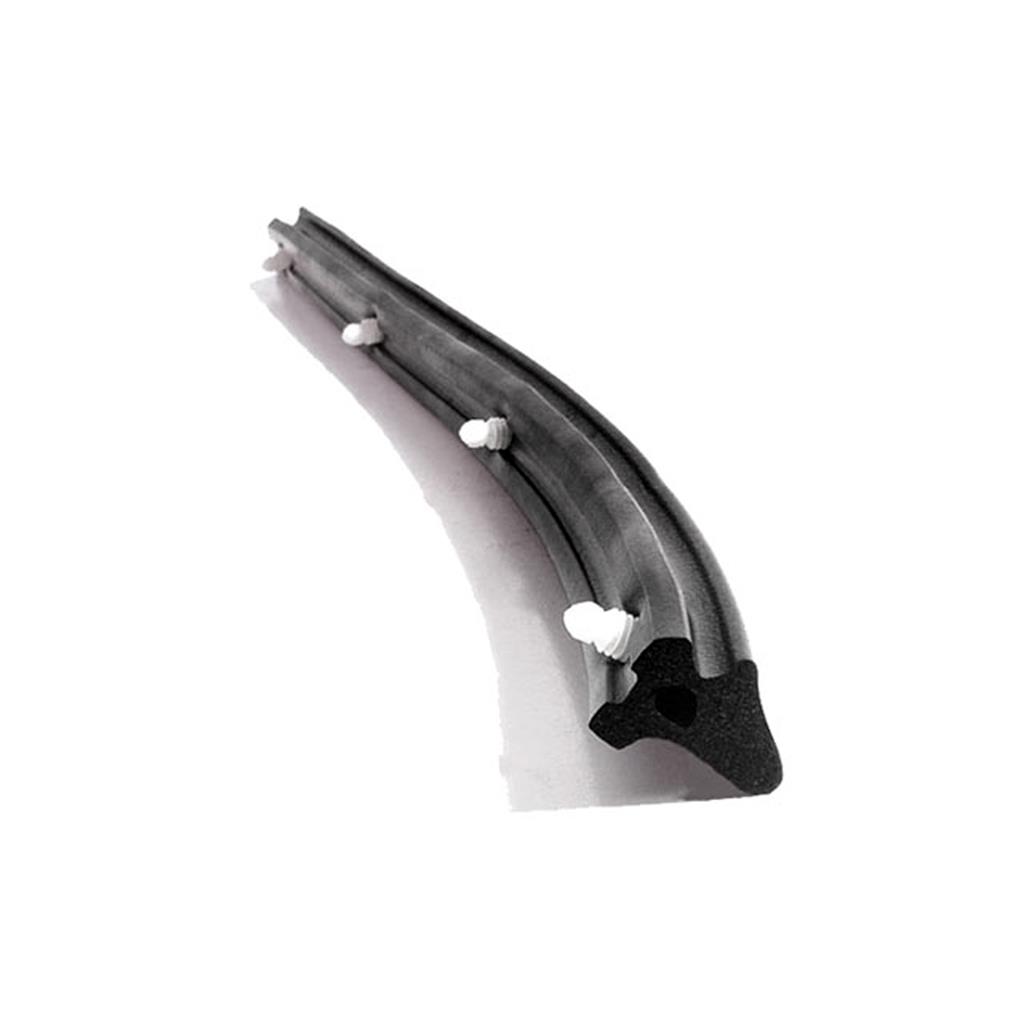 1964 Chevrolet Corvair Door Side Seal ('64-'65 some models)-C/LP 40-CDoor Side Seal ('64-'65 some models). Comes complete with clips already installed, 4" apart. For seal without clips, see LP 40-C. Sold by the foot.
1964 Chevrolet Corvair Door Side Seal ('64-'65 some models)-C/LP 40-CDoor Side Seal ('64-'65 some models). Comes complete with clips already installed, 4" apart. For seal without clips, see LP 40-C. Sold by the foot.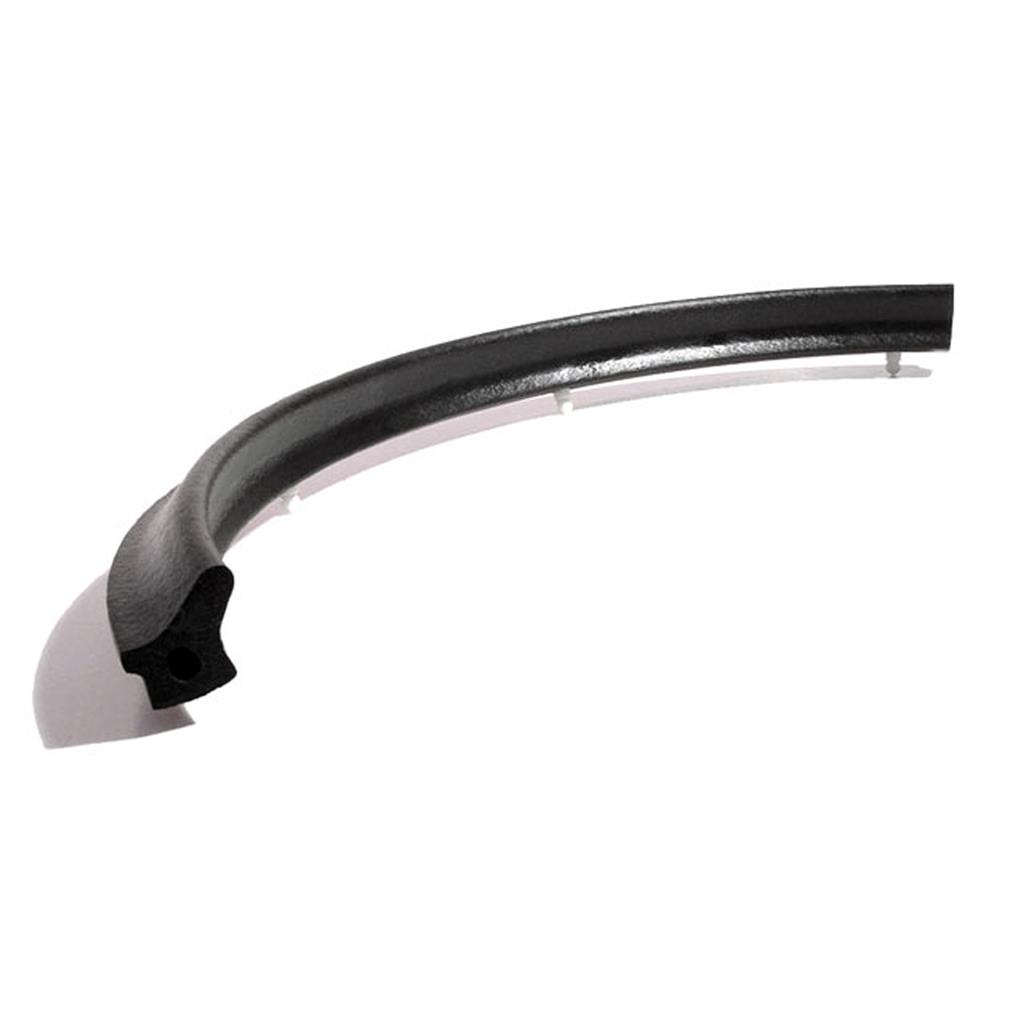 1964 Chevrolet Corvair Door Side Seal ('64-'66 some models)-C/LP 40-DDoor Side Seal ('64-'66 some models). Smooth skin-covered sponge with clips already installed, 4" apart. For seal without clips, see LP 40-D. Sold by the foot.
1964 Chevrolet Corvair Door Side Seal ('64-'66 some models)-C/LP 40-DDoor Side Seal ('64-'66 some models). Smooth skin-covered sponge with clips already installed, 4" apart. For seal without clips, see LP 40-D. Sold by the foot.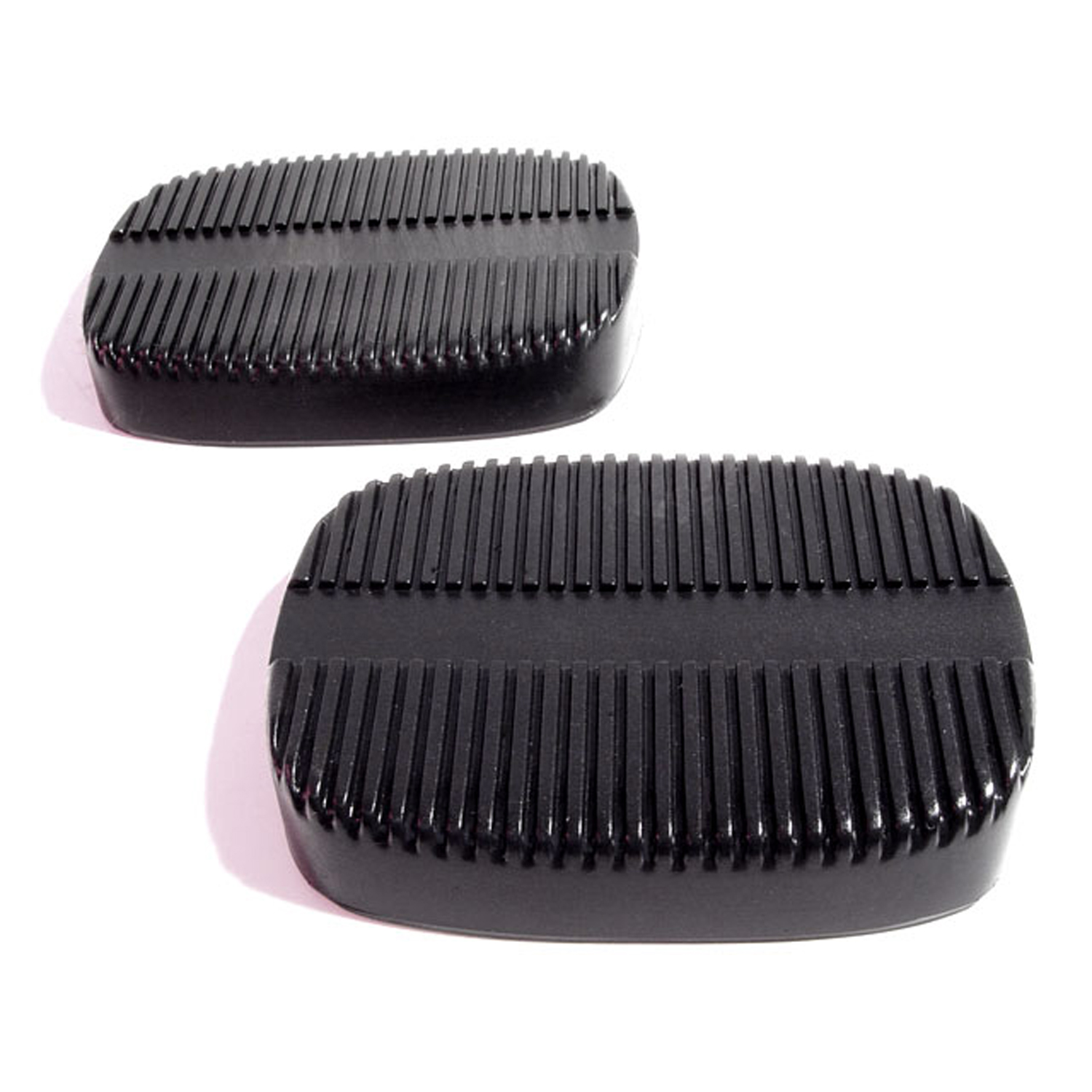 1964 Chevrolet Corvair Clutch and Brake Pedal Pads. 2-5/8" wide X 3-5/8" long-CB 101Clutch and Brake Pedal Pads. 2-5/8" wide X 3-5/8" long. Pair
1964 Chevrolet Corvair Clutch and Brake Pedal Pads. 2-5/8" wide X 3-5/8" long-CB 101Clutch and Brake Pedal Pads. 2-5/8" wide X 3-5/8" long. Pair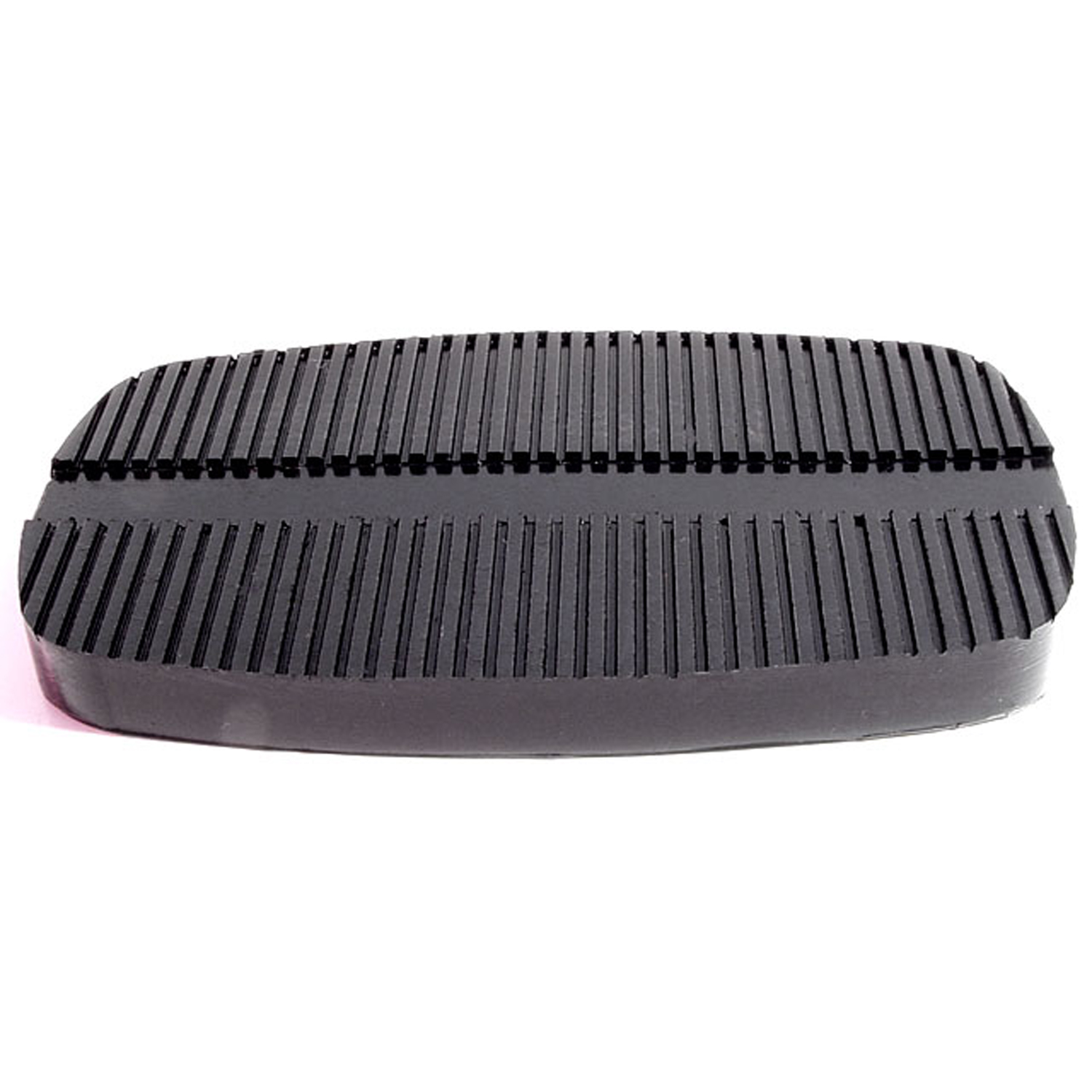 1964 Chevrolet Corvair Brake Pedal Pad-CB 101-ABrake Pedal Pad. For power brakes or automatic transmissions. 4-3/4" wide X 2-3/4' long. Each
1964 Chevrolet Corvair Brake Pedal Pad-CB 101-ABrake Pedal Pad. For power brakes or automatic transmissions. 4-3/4" wide X 2-3/4' long. Each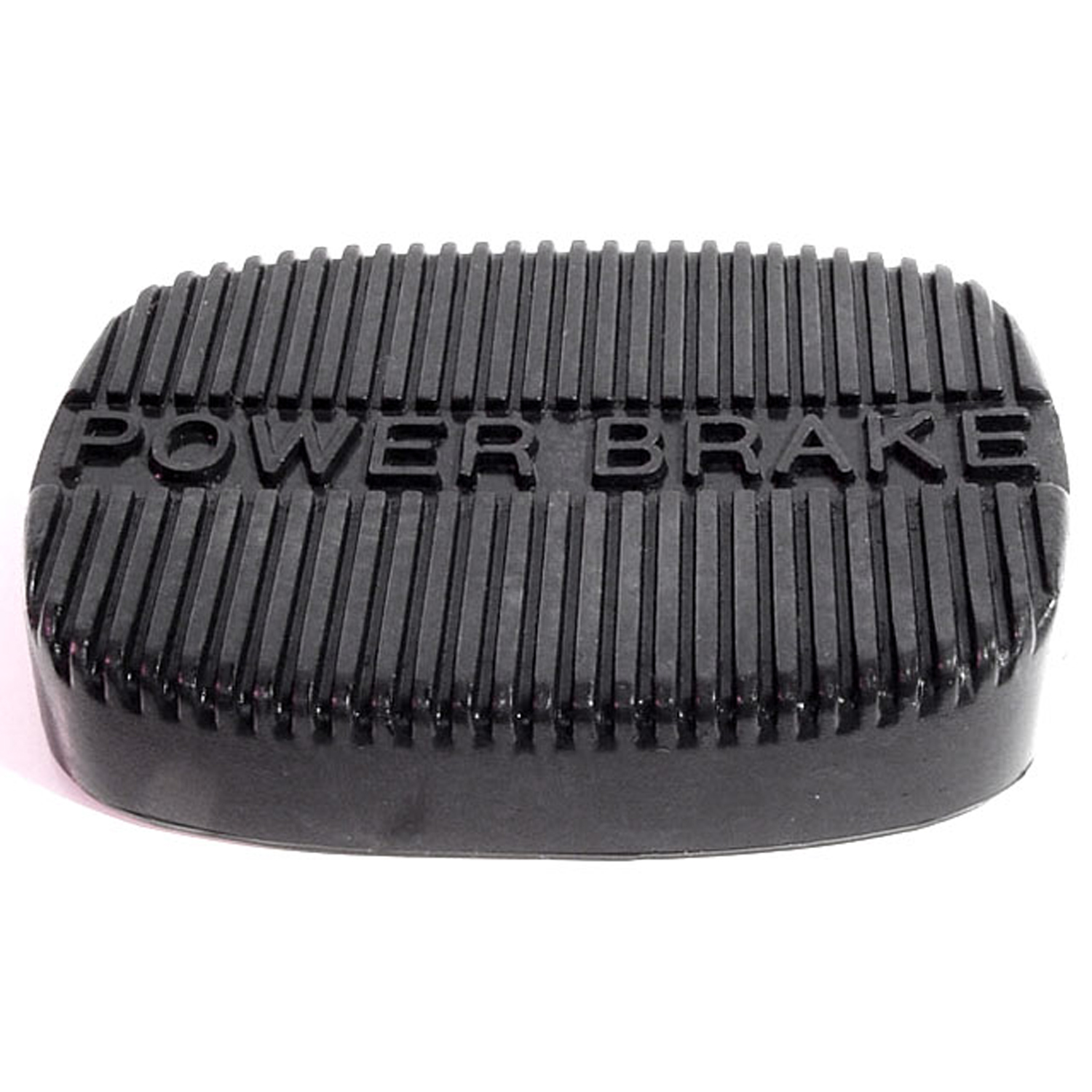 1964 Chevrolet Corvair Power Brake Pedal Pad. For cars with manual transmission-CB 101-CPower Brake Pedal Pad. For cars with manual transmission. Nice reproduction. 3-5/8" wide X 2-5/8" long. Each
1964 Chevrolet Corvair Power Brake Pedal Pad. For cars with manual transmission-CB 101-CPower Brake Pedal Pad. For cars with manual transmission. Nice reproduction. 3-5/8" wide X 2-5/8" long. Each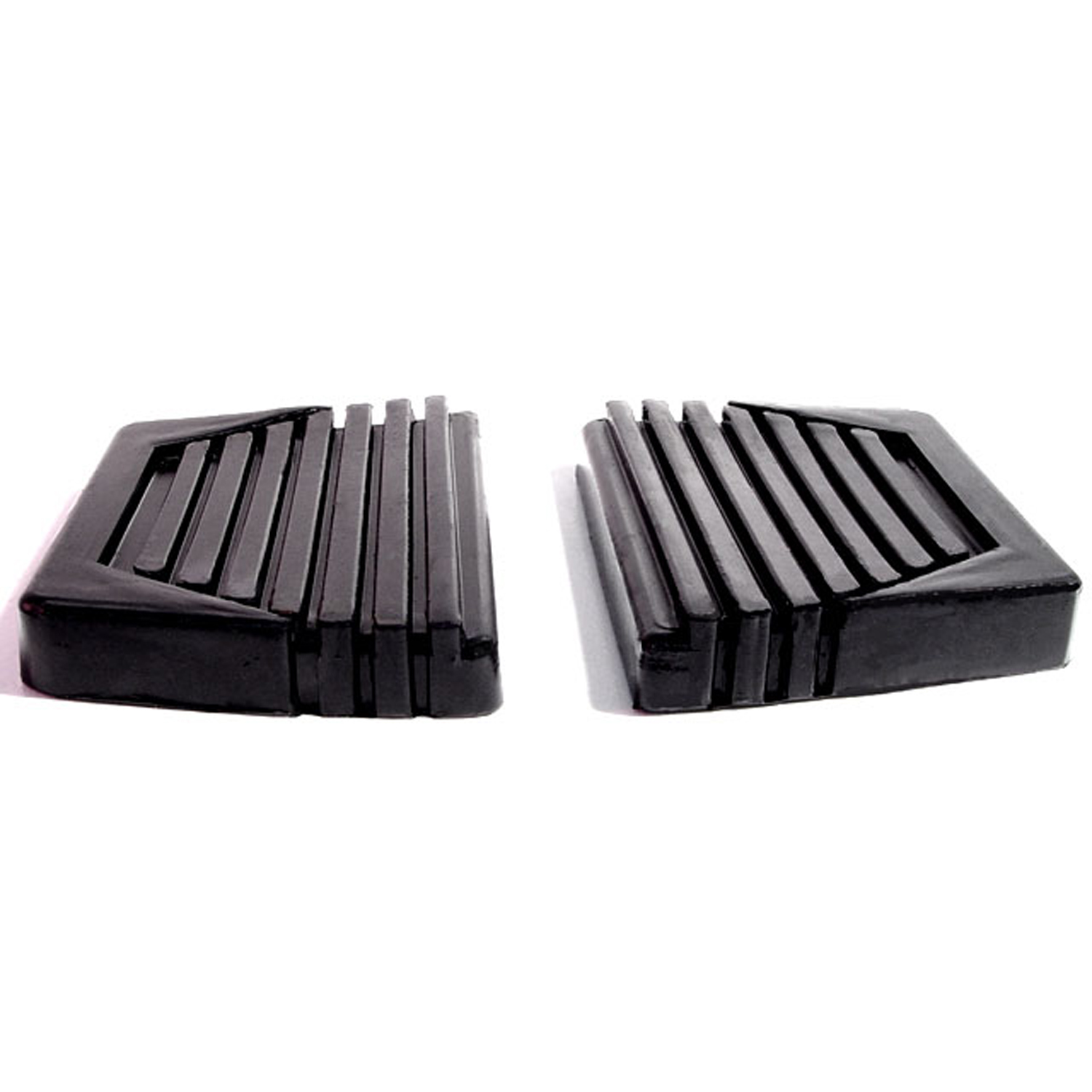 1964 Chevrolet Corvair Clutch and Brake Pedal Pads. Exact reproduction-CB 80Clutch and Brake Pedal Pads. Exact reproduction. 3-3/8" wide X 2-3/8" long. Pair
1964 Chevrolet Corvair Clutch and Brake Pedal Pads. Exact reproduction-CB 80Clutch and Brake Pedal Pads. Exact reproduction. 3-3/8" wide X 2-3/8" long. Pair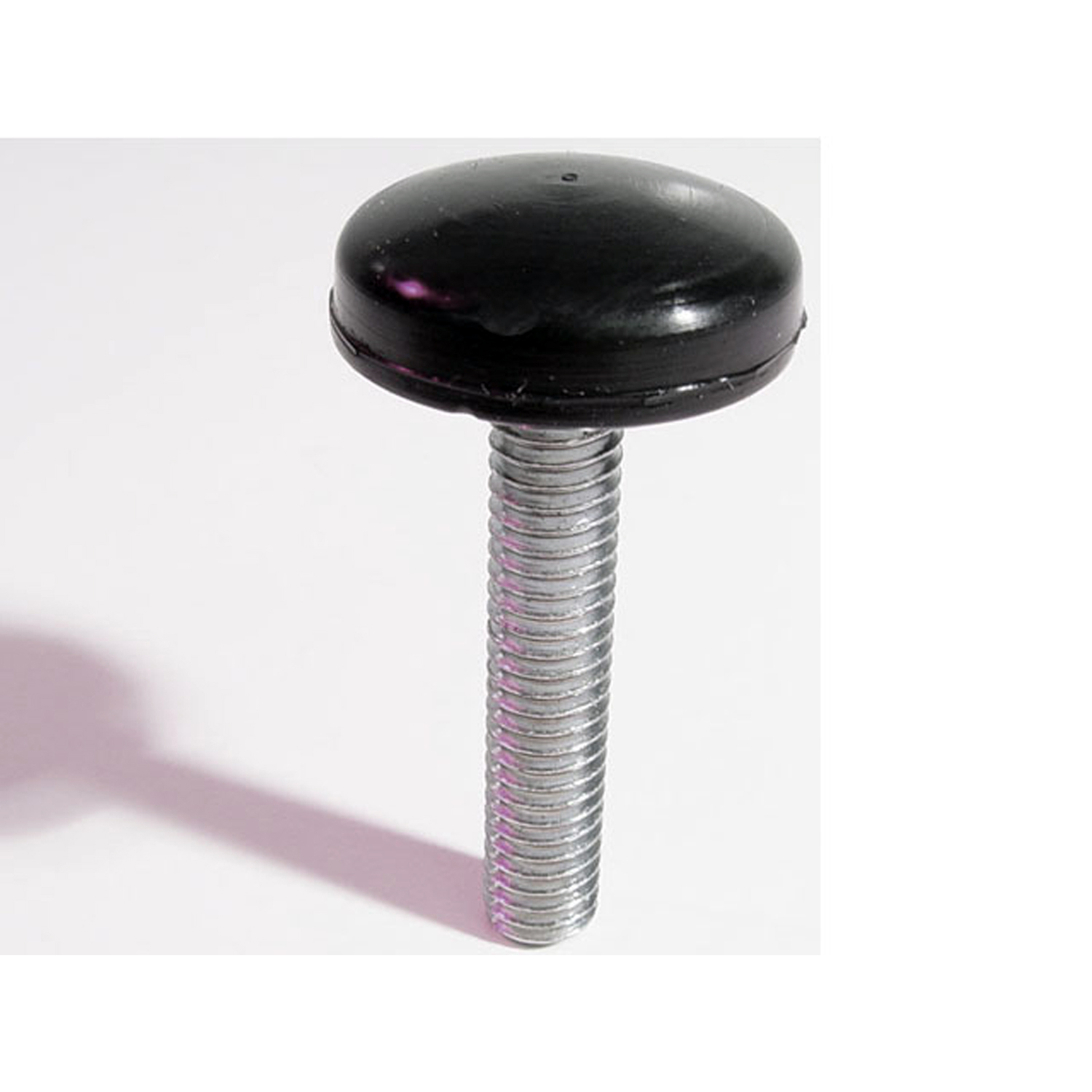 1964 Chevrolet Corvair Hood Adjustment Bolt and Bumper. 1" diameter rubber head-HA 2Hood Adjustment Bolt and Bumper. 1" diameter rubber head. 5/16" thick X 18 threads/inch X 1-3/4" long bolt. Each
1964 Chevrolet Corvair Hood Adjustment Bolt and Bumper. 1" diameter rubber head-HA 2Hood Adjustment Bolt and Bumper. 1" diameter rubber head. 5/16" thick X 18 threads/inch X 1-3/4" long bolt. Each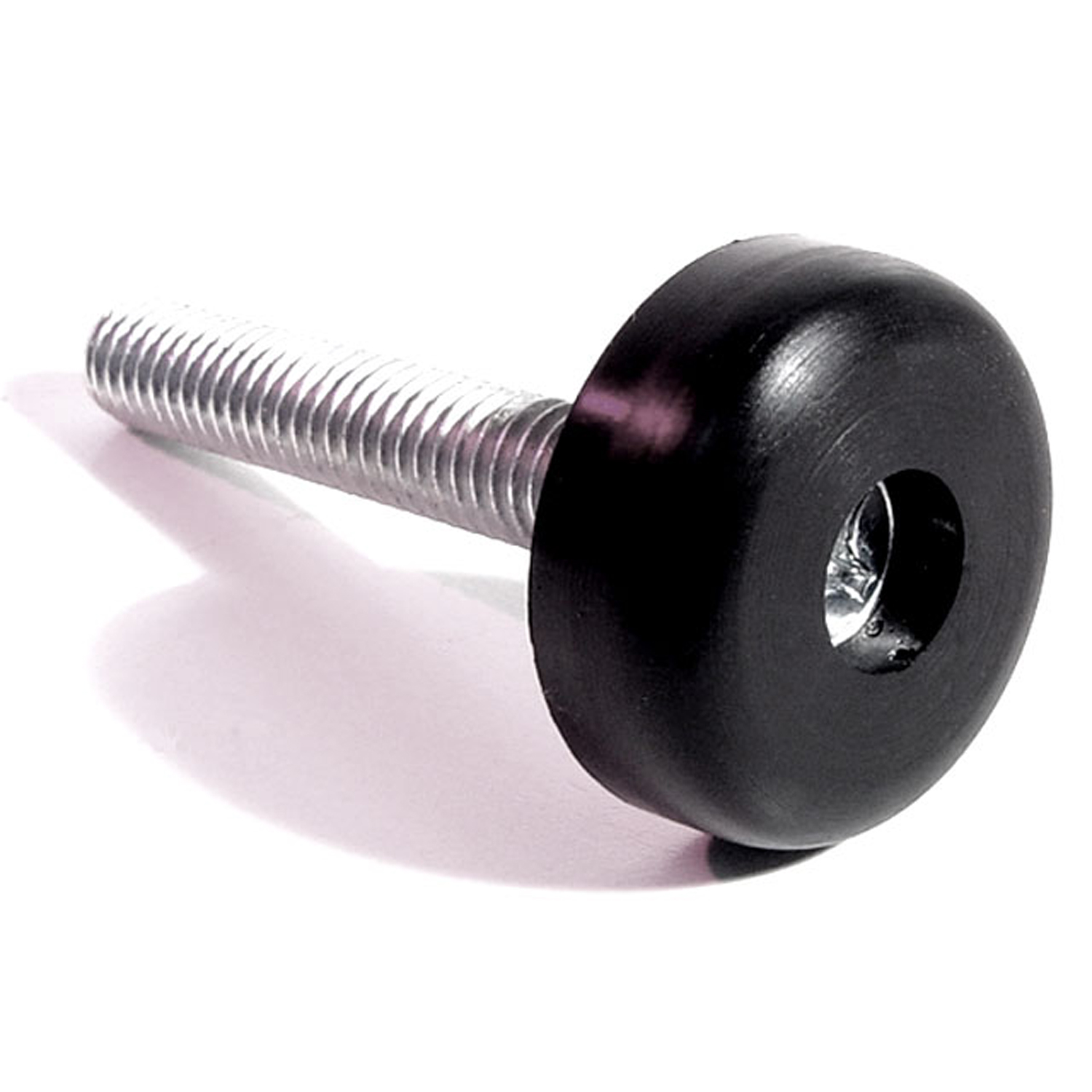 1964 Chevrolet Corvair Hood Adjustment Bolt and Bumper-HA 3Hood Adjustment Bolt and Bumper. 1-1/8" diameter rubber head. 5/16" thick X 18 threads/inch X 2-1/8" long bolt. Each
1964 Chevrolet Corvair Hood Adjustment Bolt and Bumper-HA 3Hood Adjustment Bolt and Bumper. 1-1/8" diameter rubber head. 5/16" thick X 18 threads/inch X 2-1/8" long bolt. Each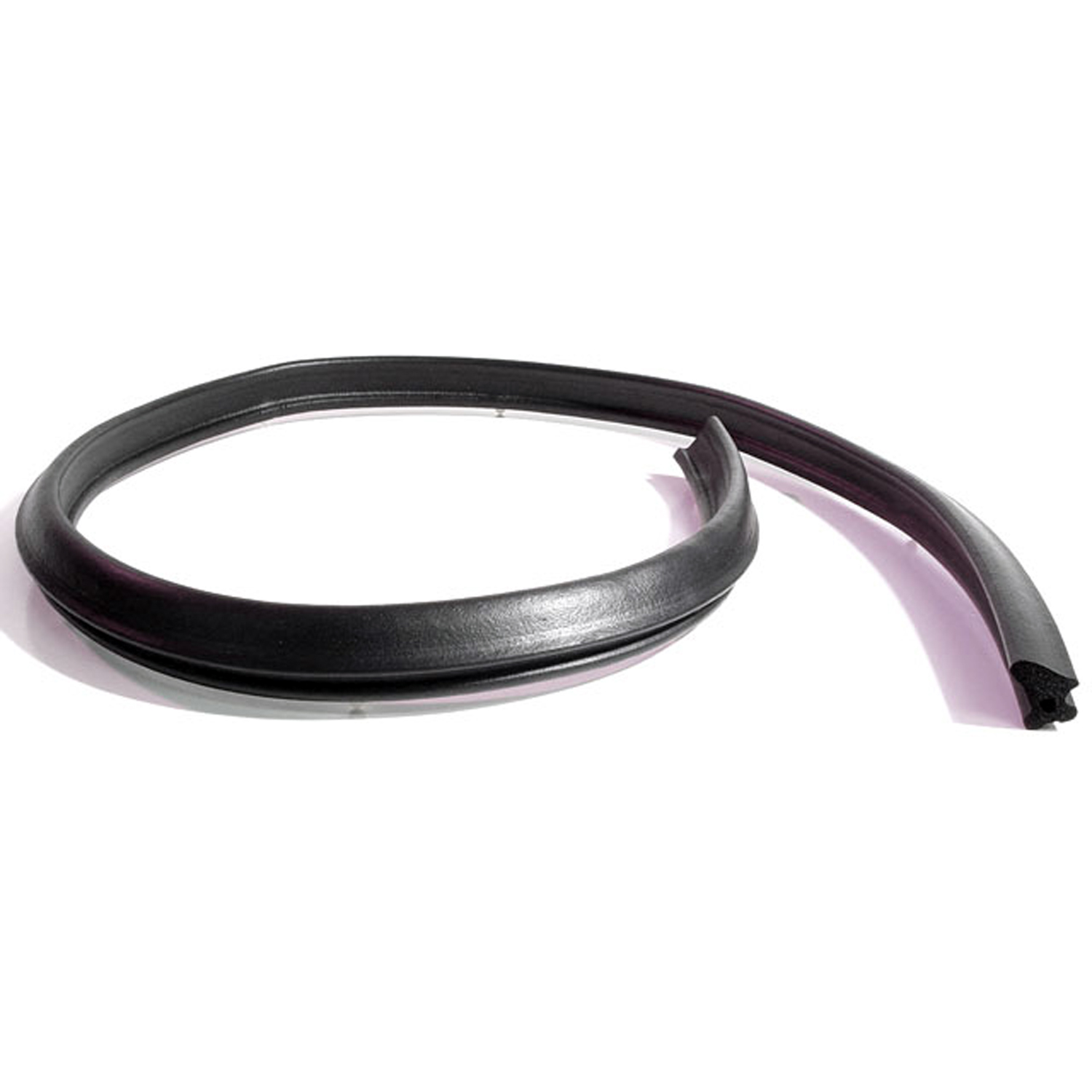 1964 Chevrolet Corvair Top Bow to Header Seal. Made of high quality sponge-HD 105Top Bow to Header Seal. Made of high quality sponge. 37-3/4" long with 10 clips installed in proper locations. Each
1964 Chevrolet Corvair Top Bow to Header Seal. Made of high quality sponge-HD 105Top Bow to Header Seal. Made of high quality sponge. 37-3/4" long with 10 clips installed in proper locations. Each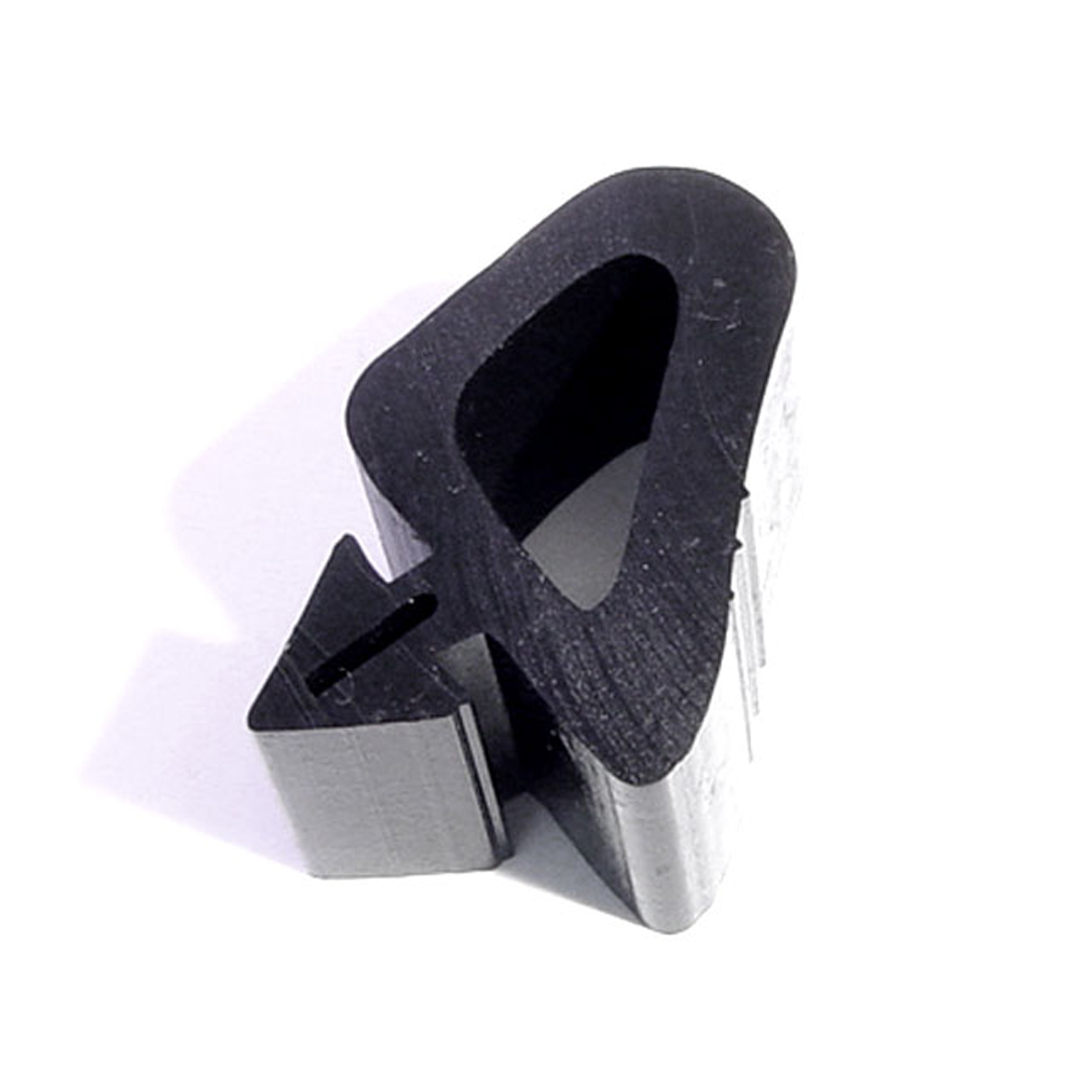 1964 Chevrolet Corvair Hood to Fender Bumper. Top Notch Reproduction. Each-HF 32Hood to Fender Bumper. Top Notch Reproduction. Each
1964 Chevrolet Corvair Hood to Fender Bumper. Top Notch Reproduction. Each-HF 32Hood to Fender Bumper. Top Notch Reproduction. Each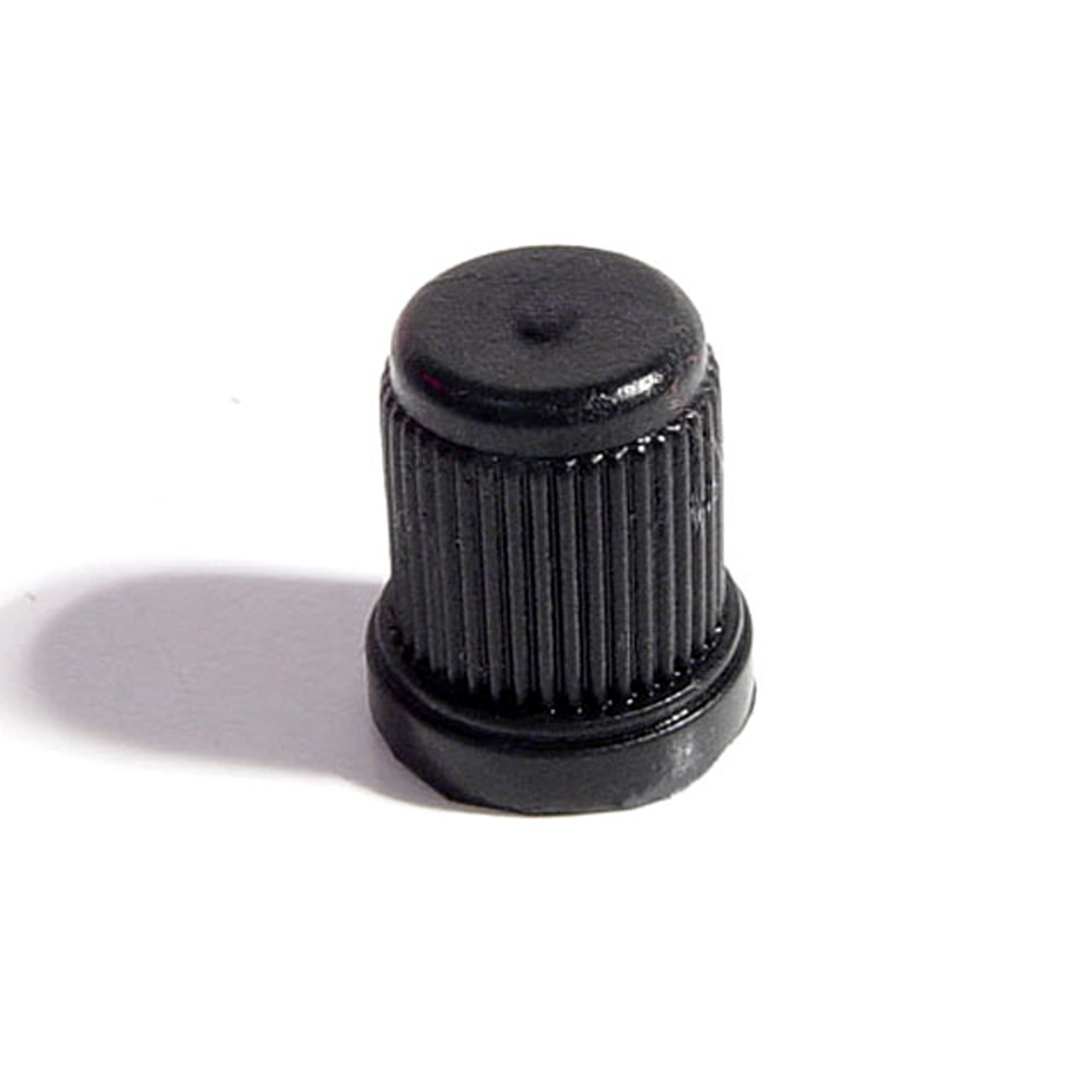 1964 Chevrolet Corvair Trip Meter Reset Knob. Made of black rubber-KN 10Trip Meter Reset Knob. Made of black rubber. Compare to measurements: 1/8" I.D., 7/16" O.D. X 1/2" tall. Each
1964 Chevrolet Corvair Trip Meter Reset Knob. Made of black rubber-KN 10Trip Meter Reset Knob. Made of black rubber. Compare to measurements: 1/8" I.D., 7/16" O.D. X 1/2" tall. Each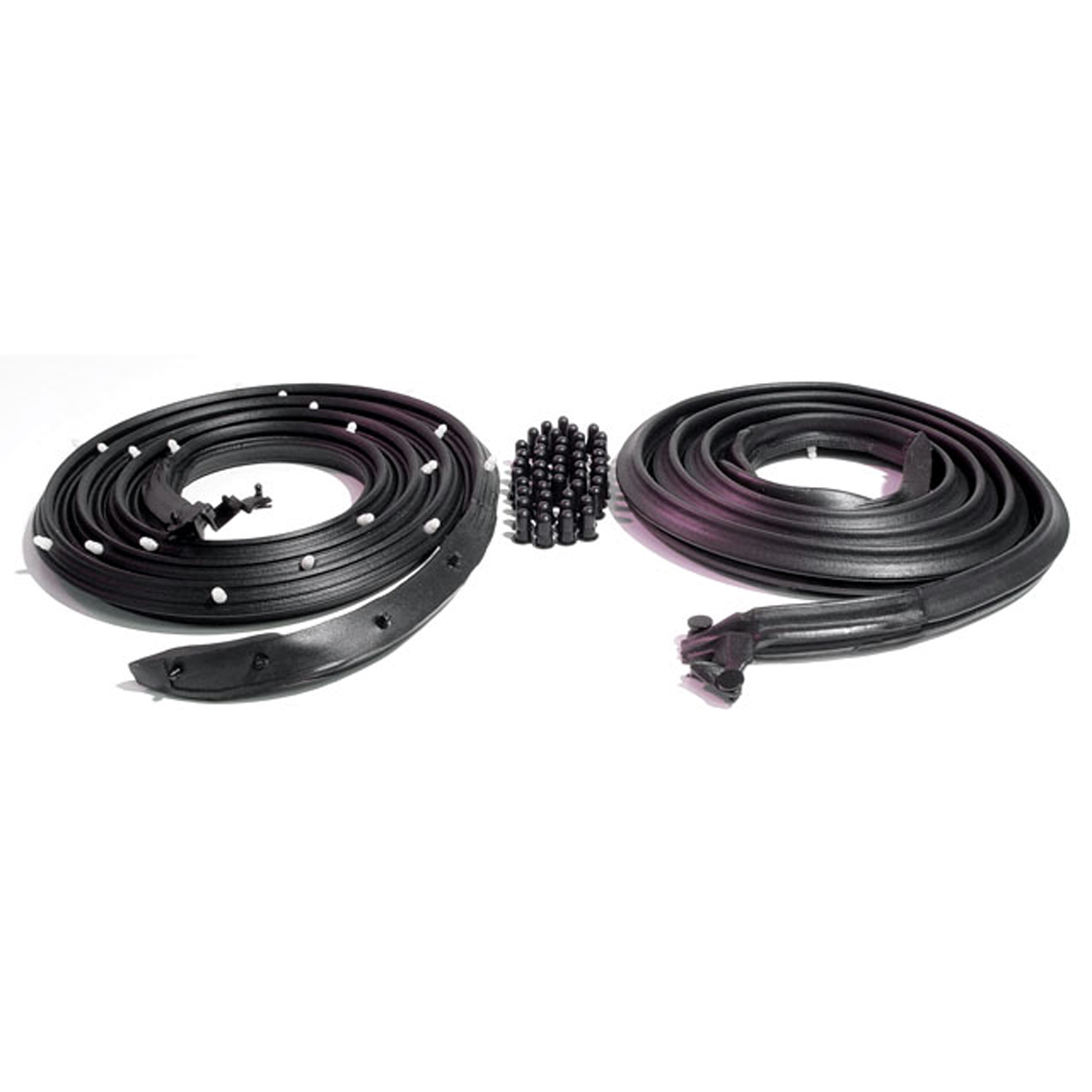 1964 Chevrolet Corvair Molded Door Seals with Clips. For late '63-'64 convertibles-LM 13-CMolded Door Seals with Clips. For late '63-'64 convertibles. Replaces OEM #4868685/6. 83-3/4" long. Pair R&L
1964 Chevrolet Corvair Molded Door Seals with Clips. For late '63-'64 convertibles-LM 13-CMolded Door Seals with Clips. For late '63-'64 convertibles. Replaces OEM #4868685/6. 83-3/4" long. Pair R&L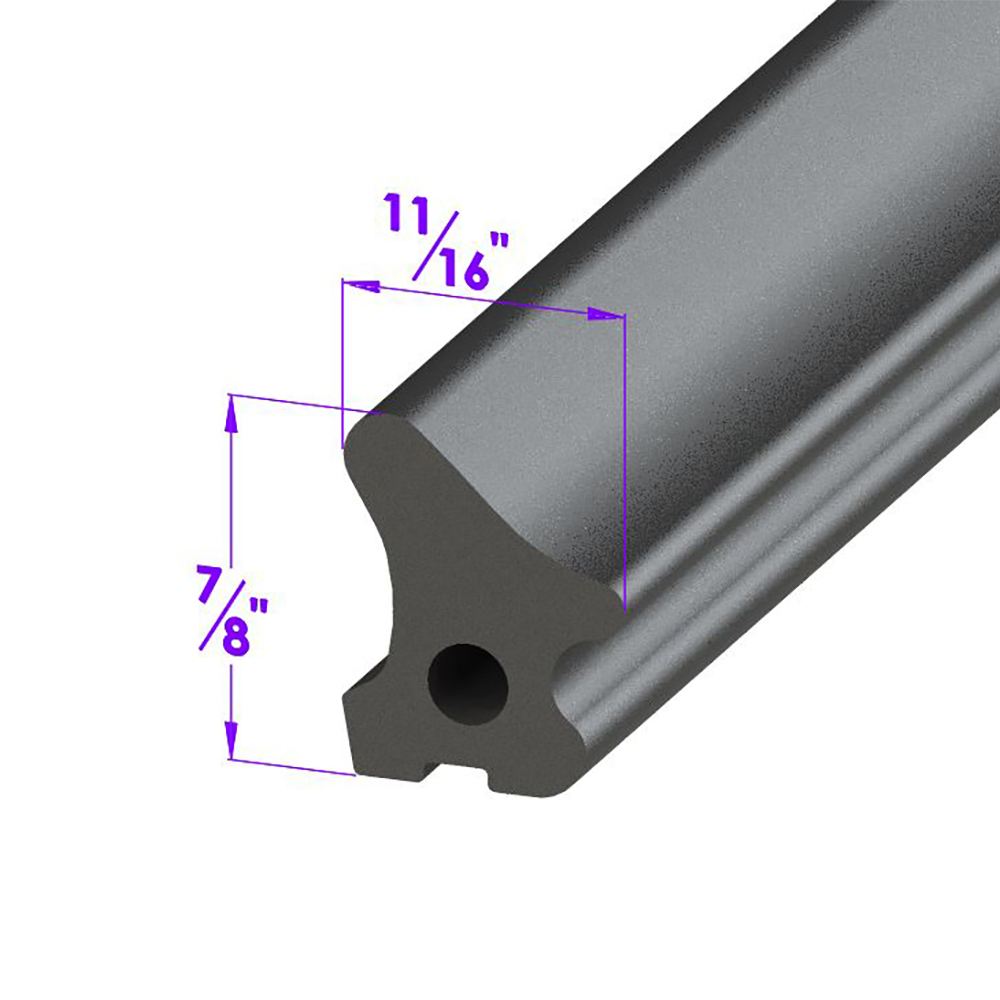 1964 Chevrolet Corvair Door Side Seal-LP 40-CDoor Side Seal, Without Clips ('64-'65 some models) For seal with clips, see C/LP 40-C. Sold by the foot
1964 Chevrolet Corvair Door Side Seal-LP 40-CDoor Side Seal, Without Clips ('64-'65 some models) For seal with clips, see C/LP 40-C. Sold by the foot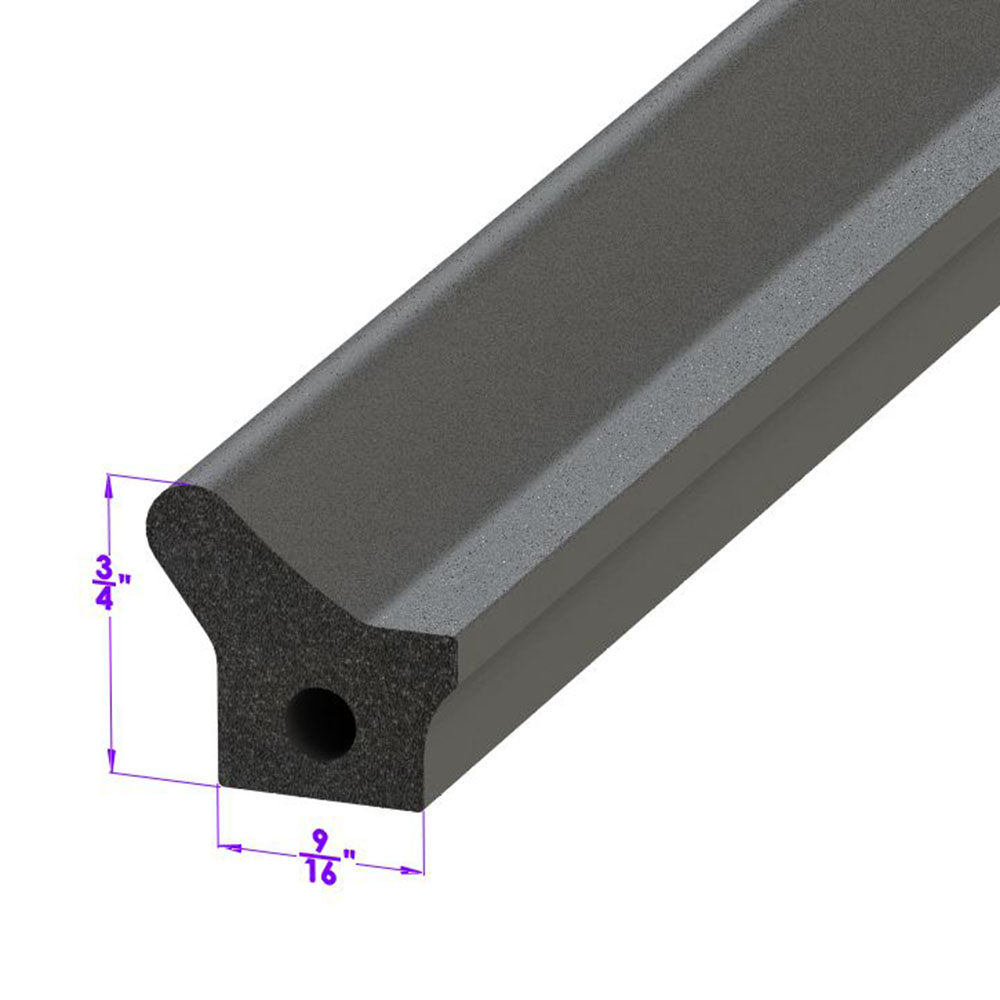 1964 Chevrolet Corvair Door Side Seal-LP 40-DDoor Side Seal, Without Clips ('64-'66 some models) For seal with clips, see C/LP 40-D. Sold by the foot
1964 Chevrolet Corvair Door Side Seal-LP 40-DDoor Side Seal, Without Clips ('64-'66 some models) For seal with clips, see C/LP 40-D. Sold by the foot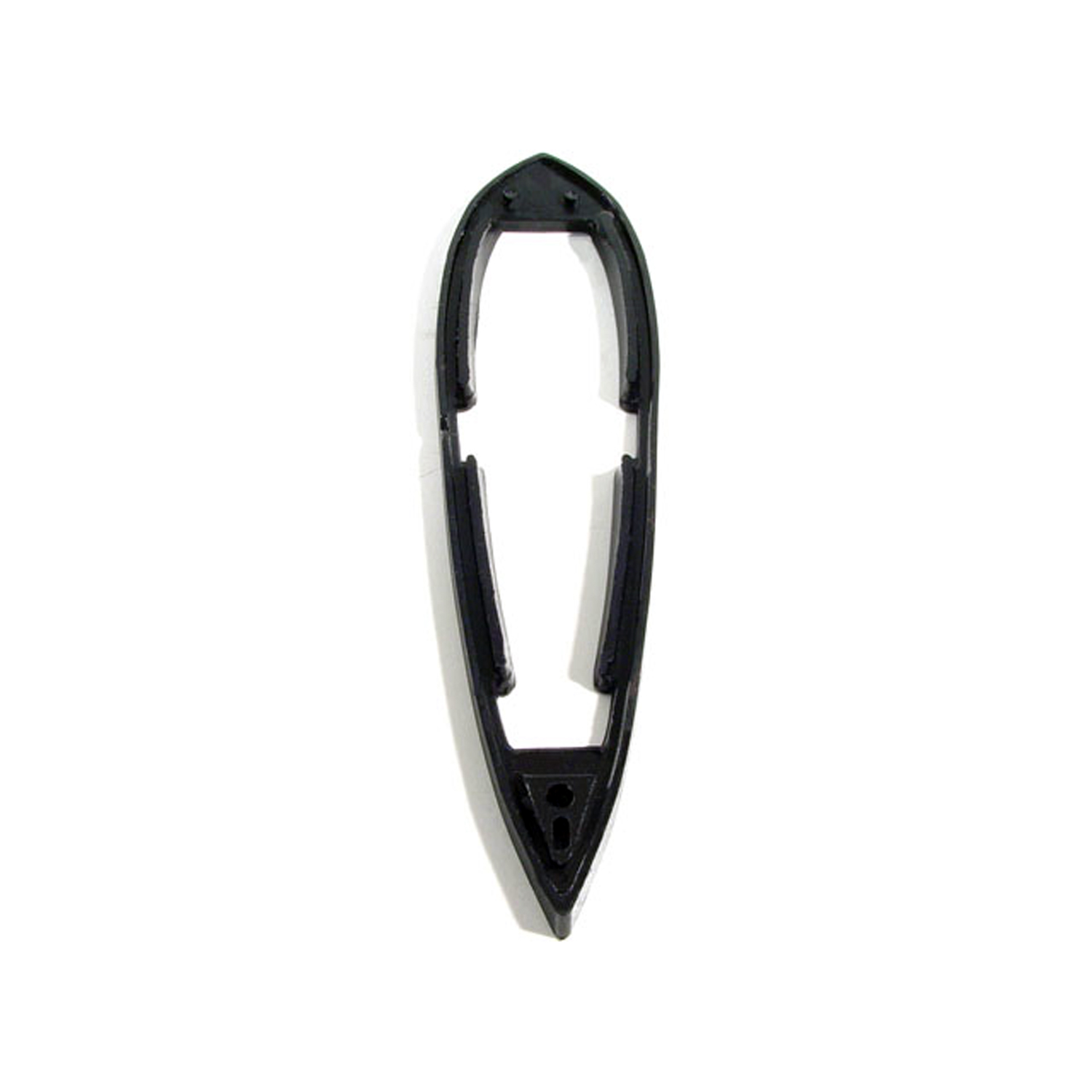 1964 Chevrolet Corvair Mirror Gasket. 1-1/2" wide X 5-7/8" long. Each-MP 547-OMirror Gasket. 1-1/2" wide X 5-7/8" long. Each
1964 Chevrolet Corvair Mirror Gasket. 1-1/2" wide X 5-7/8" long. Each-MP 547-OMirror Gasket. 1-1/2" wide X 5-7/8" long. Each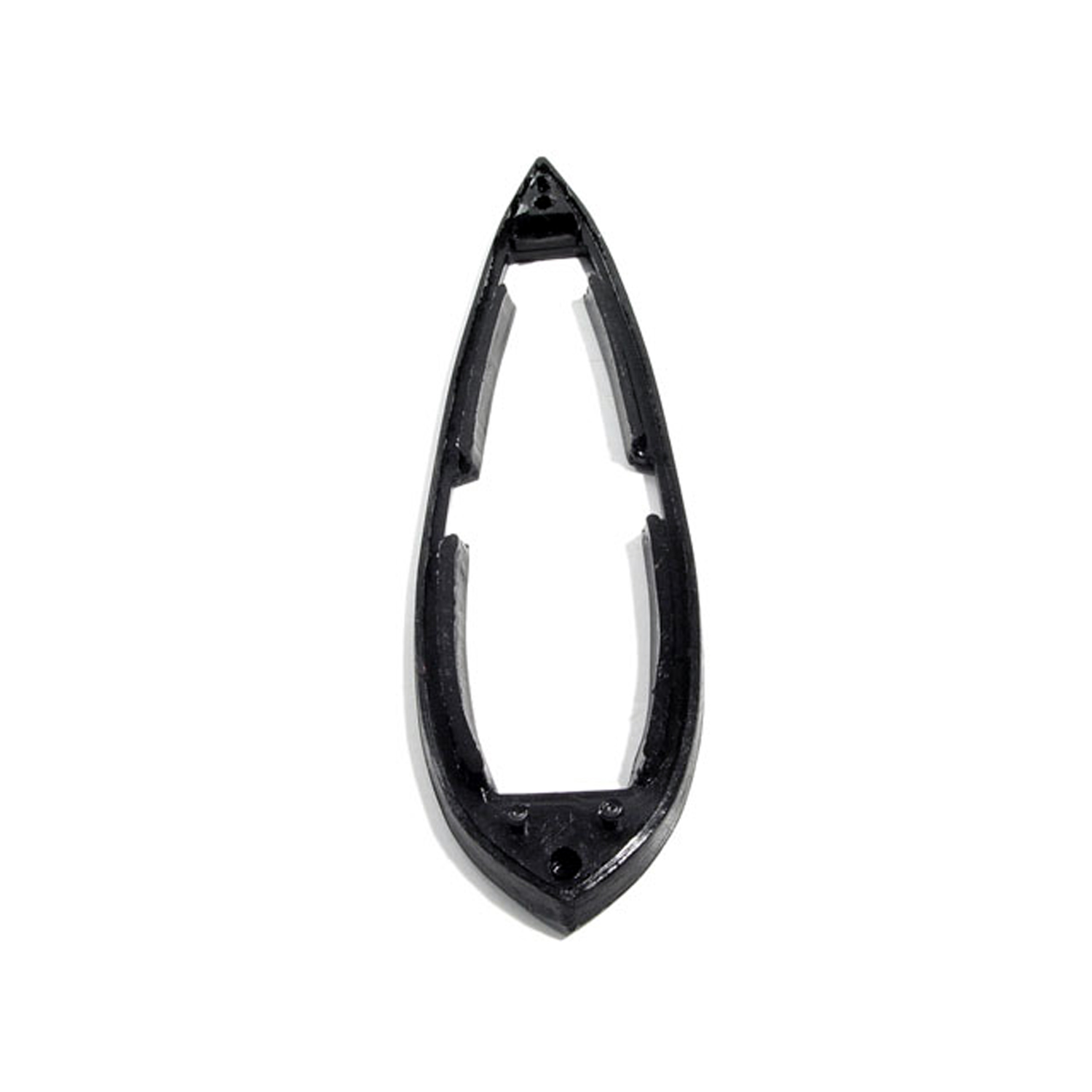 1964 Chevrolet Corvair Mirror Gasket. 1-9/16" wide X 5-7/8" long. Each-MP 547-PMirror Gasket. 1-9/16" wide X 5-7/8" long. Each
1964 Chevrolet Corvair Mirror Gasket. 1-9/16" wide X 5-7/8" long. Each-MP 547-PMirror Gasket. 1-9/16" wide X 5-7/8" long. Each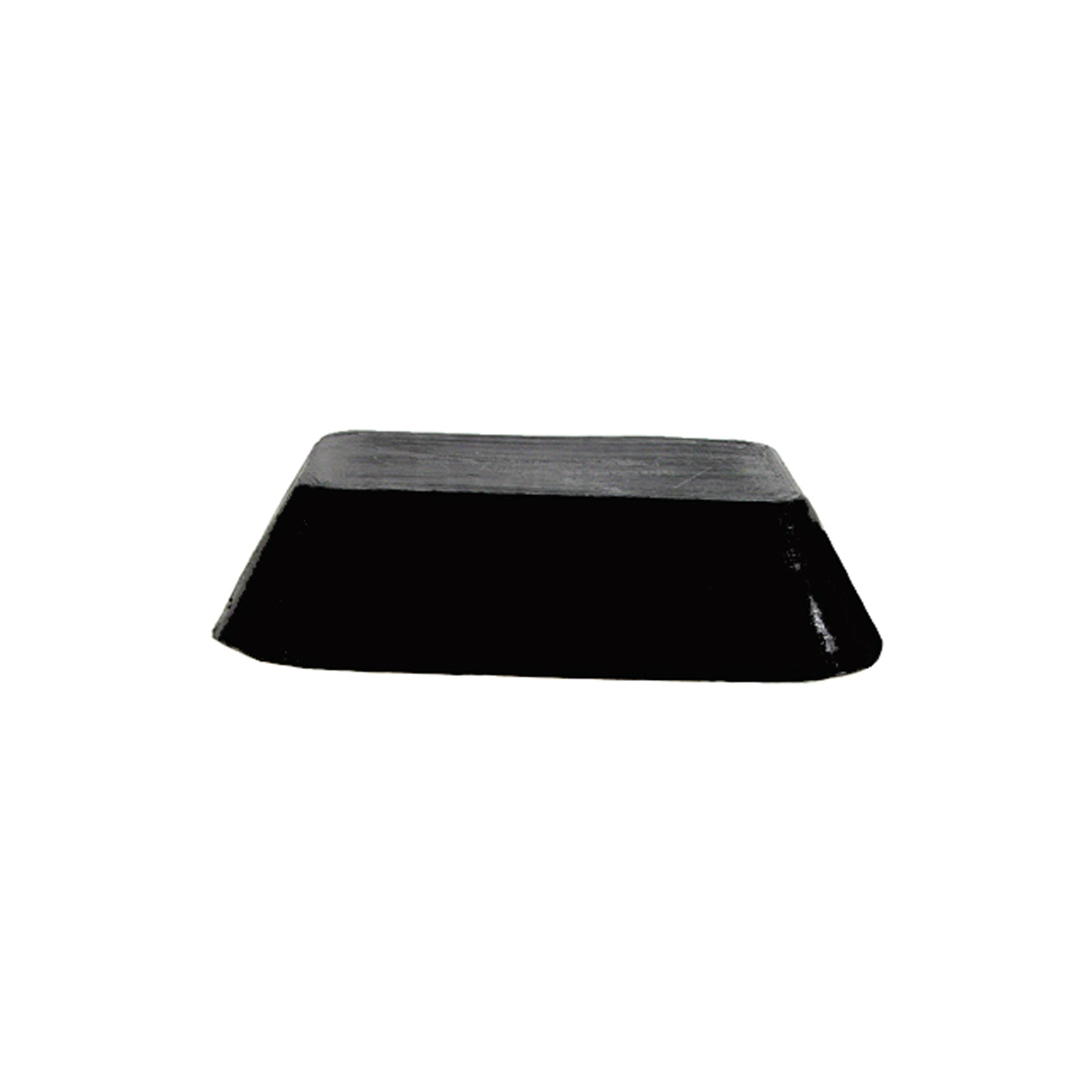 1964 Chevrolet Corvair Trunk Handle Grab Pad. Each-RP 301Trunk Handle Grab Pad. Each
1964 Chevrolet Corvair Trunk Handle Grab Pad. Each-RP 301Trunk Handle Grab Pad. Each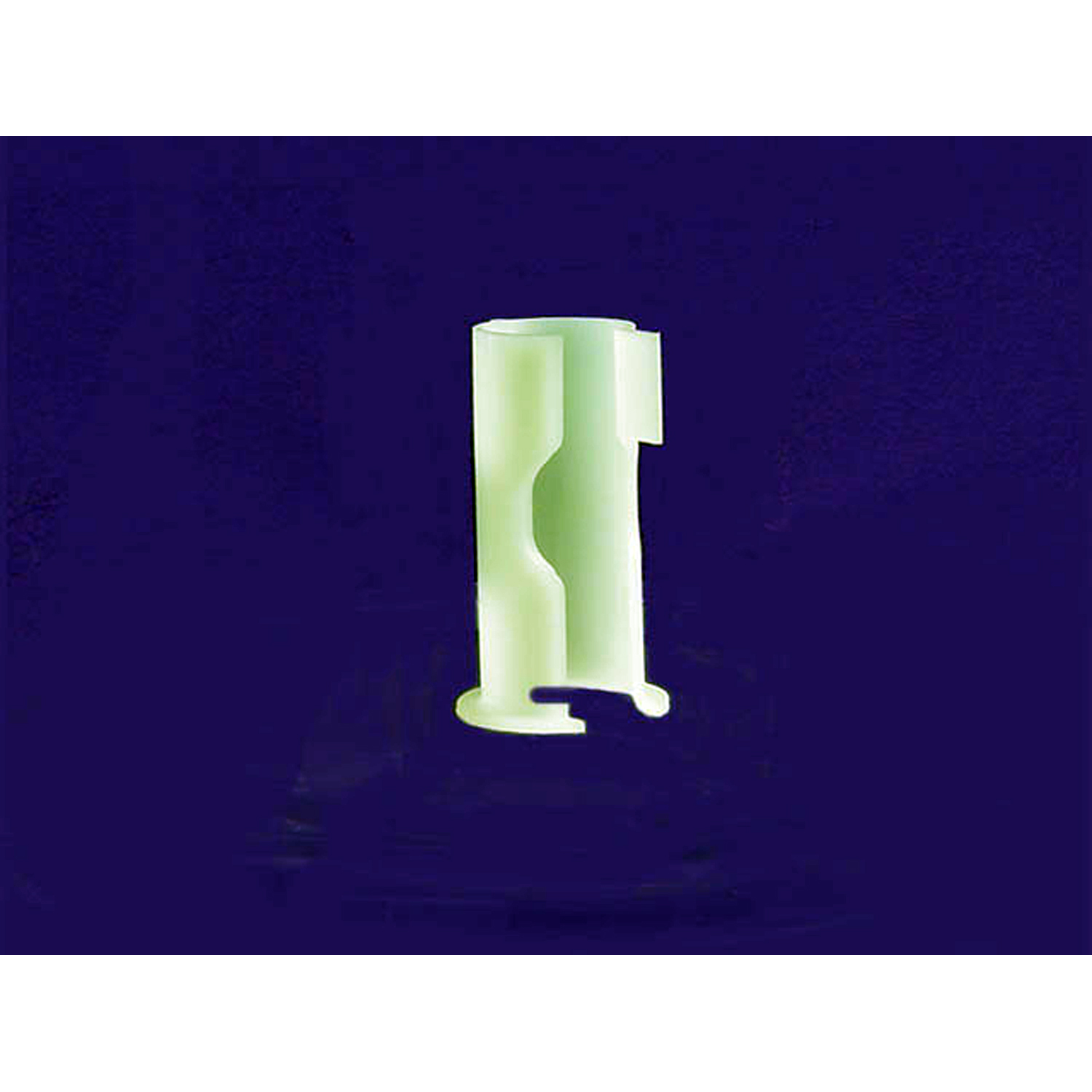 1964 Chevrolet Corvair Sun Visor Support Sleeve. Clear plastic. Each-RP 303-ASun Visor Support Sleeve. Clear plastic. Each
1964 Chevrolet Corvair Sun Visor Support Sleeve. Clear plastic. Each-RP 303-ASun Visor Support Sleeve. Clear plastic. Each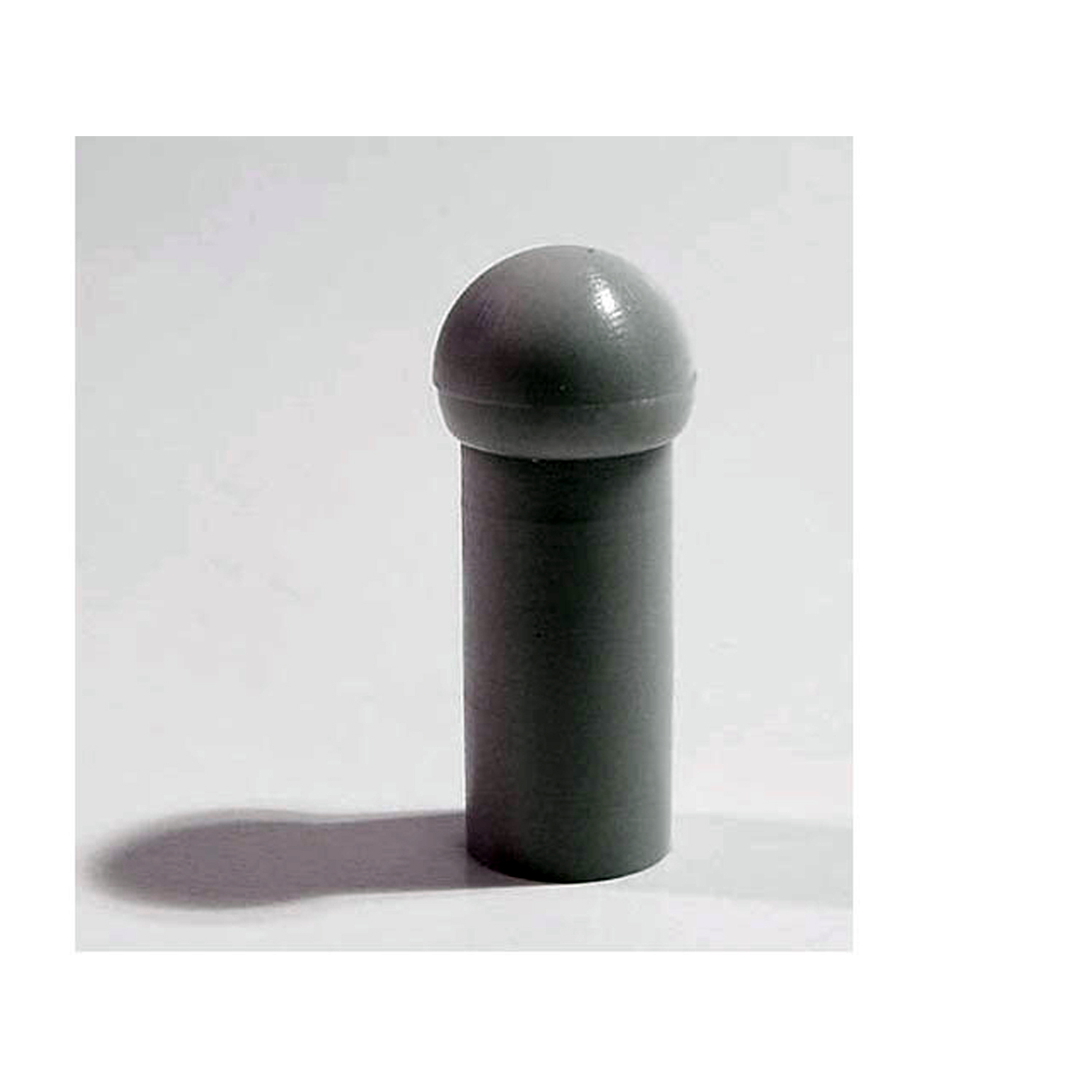 1964 Chevrolet Corvair Sun Visor Rod Rubber Grommet. 3/4" long. Gray. Each-RP 303-CSun Visor Rod Rubber Grommet. 3/4" long. Gray. Each
1964 Chevrolet Corvair Sun Visor Rod Rubber Grommet. 3/4" long. Gray. Each-RP 303-CSun Visor Rod Rubber Grommet. 3/4" long. Gray. Each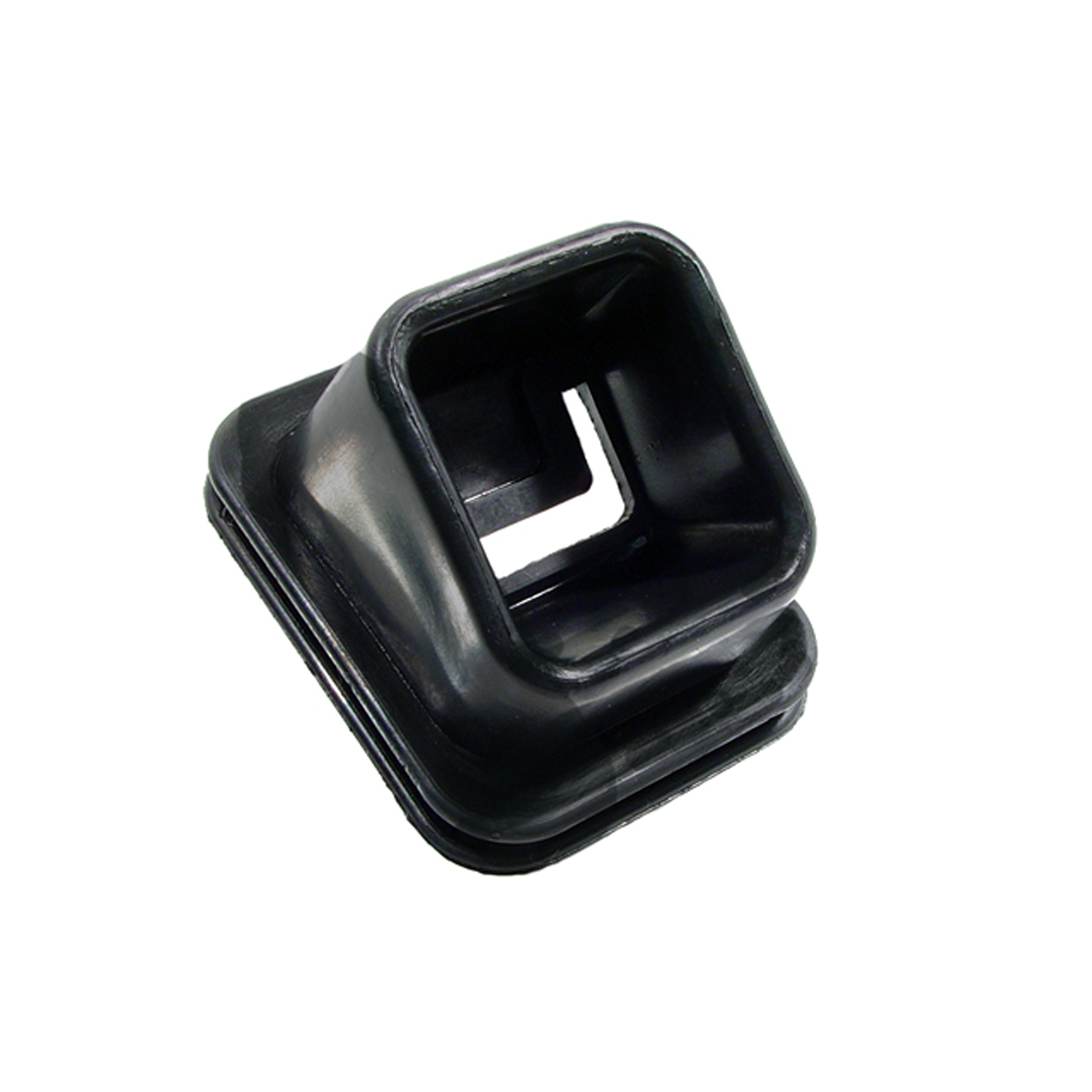 1964 Chevrolet Corvair Clutch Arm Fork Boot. Fits on bell housing to keep dirt out-RP 31-DClutch Arm Fork Boot. Fits on bell housing to keep dirt out. Each
1964 Chevrolet Corvair Clutch Arm Fork Boot. Fits on bell housing to keep dirt out-RP 31-DClutch Arm Fork Boot. Fits on bell housing to keep dirt out. Each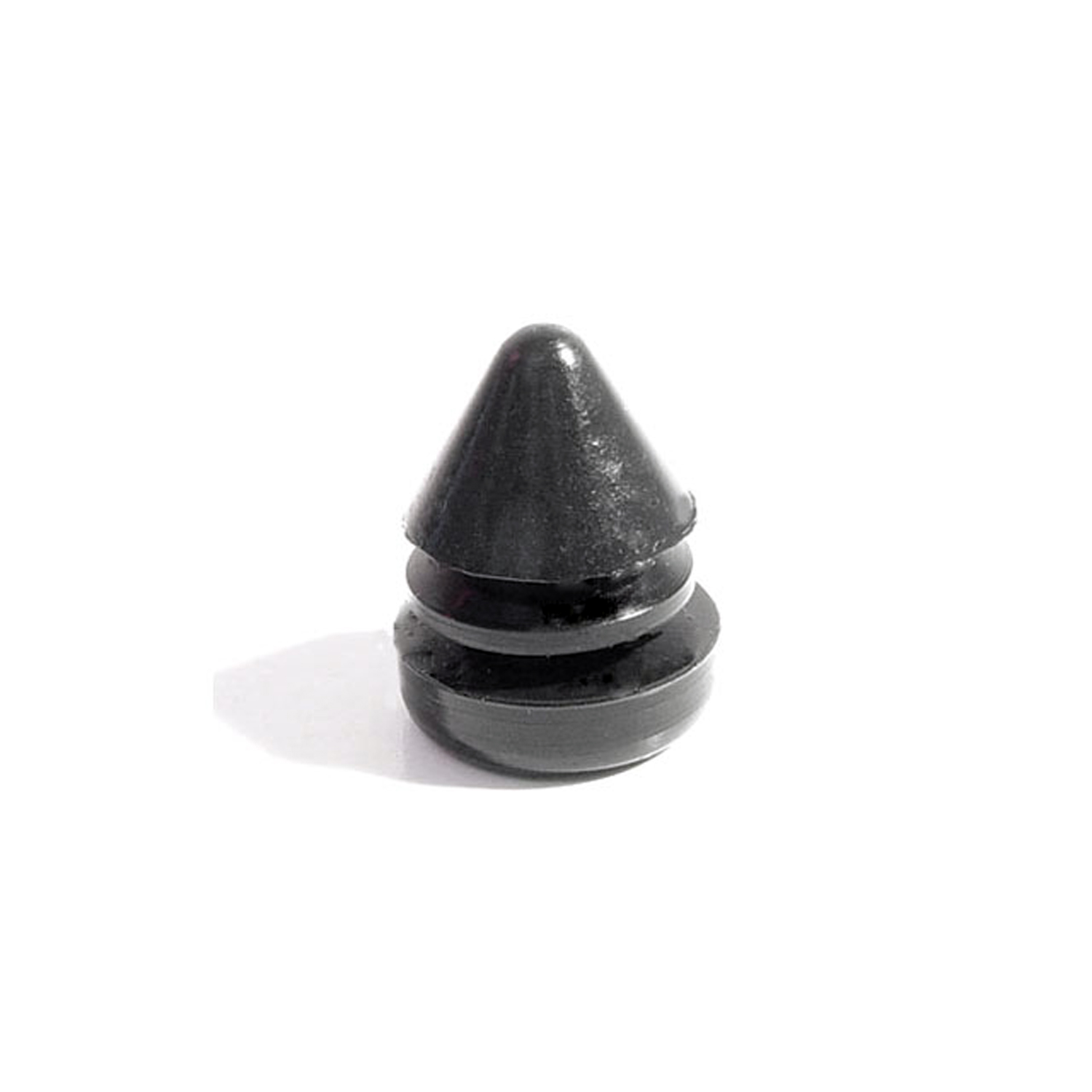 1964 Chevrolet Corvair Hydro-Electric Power Unit Mounting Cushion-RP 710Hydro-Electric Power Unit Mounting Cushion. For convertibles only. Each
1964 Chevrolet Corvair Hydro-Electric Power Unit Mounting Cushion-RP 710Hydro-Electric Power Unit Mounting Cushion. For convertibles only. Each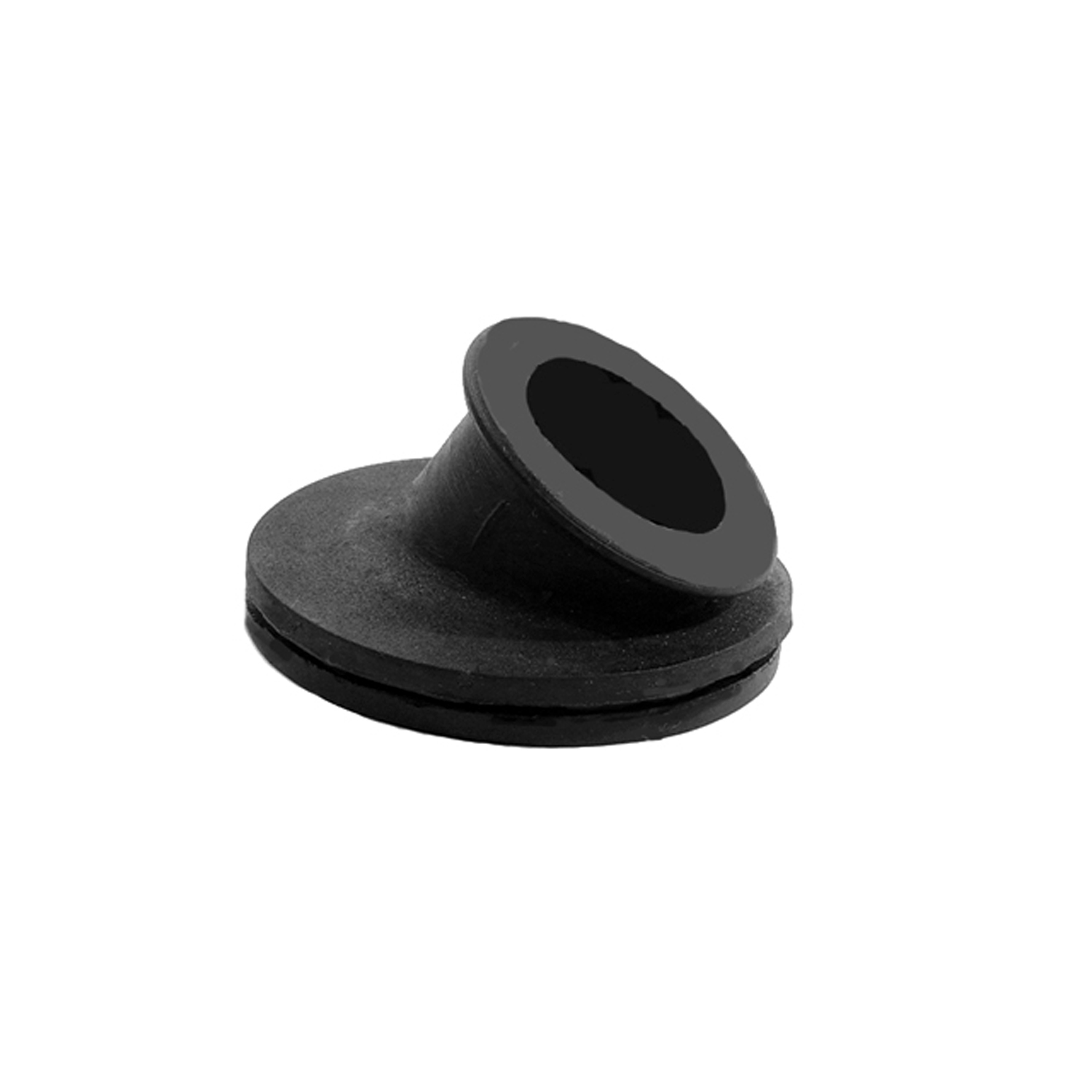 1964 Chevrolet Corvair Power-Glide Transmission Dipstick Boot. 3/4" I.D., 1-3/4" O-RP 8-EPower-Glide Transmission Dipstick Boot. 3/4" I.D., 1-3/4" O.D. Each
1964 Chevrolet Corvair Power-Glide Transmission Dipstick Boot. 3/4" I.D., 1-3/4" O-RP 8-EPower-Glide Transmission Dipstick Boot. 3/4" I.D., 1-3/4" O.D. Each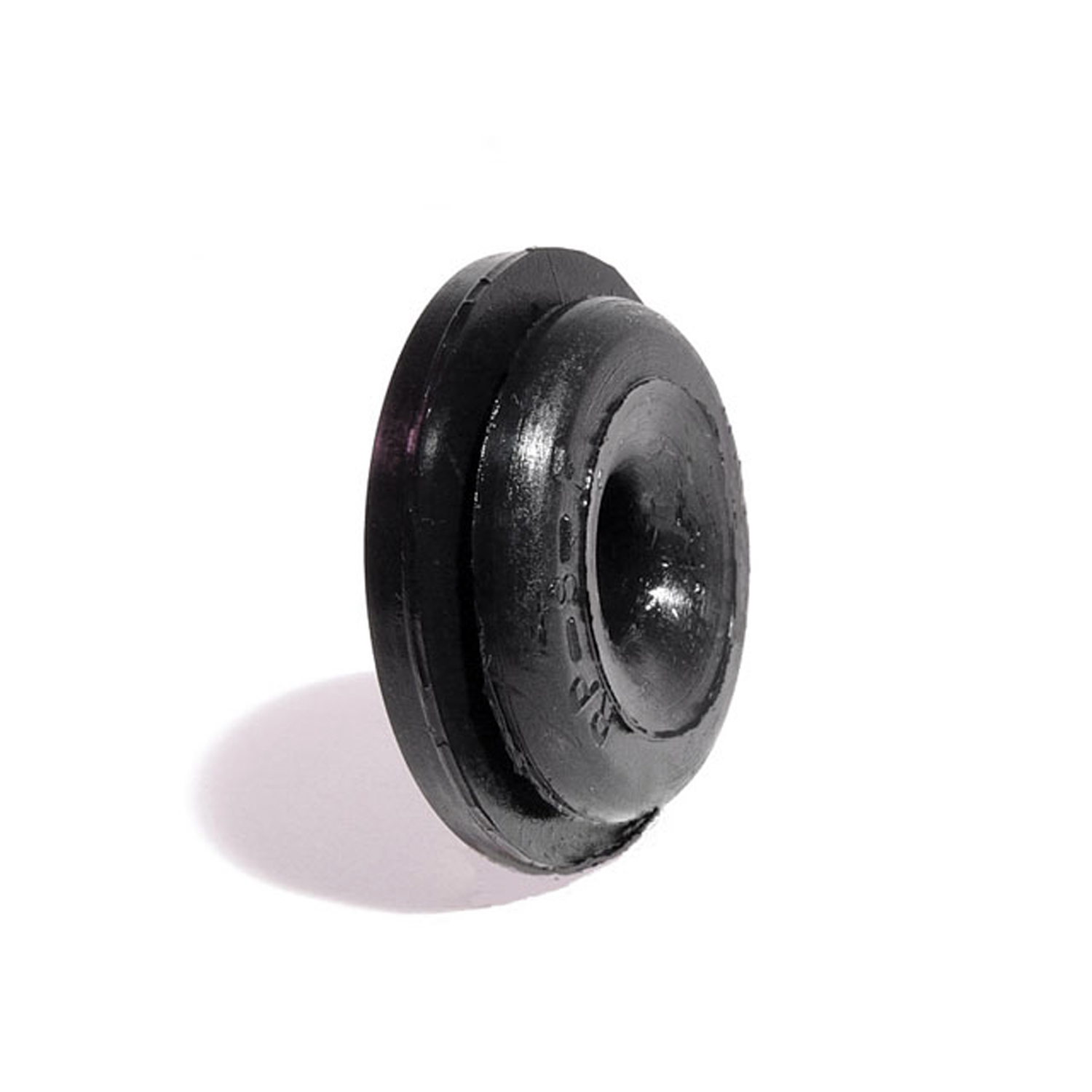 1964 Chevrolet Corvair Engine Dipstick Grommet. 5/16" I.D., 1-1/2" O.D. Each-RP 8-FEngine Dipstick Grommet. 5/16" I.D., 1-1/2" O.D. Each
1964 Chevrolet Corvair Engine Dipstick Grommet. 5/16" I.D., 1-1/2" O.D. Each-RP 8-FEngine Dipstick Grommet. 5/16" I.D., 1-1/2" O.D. Each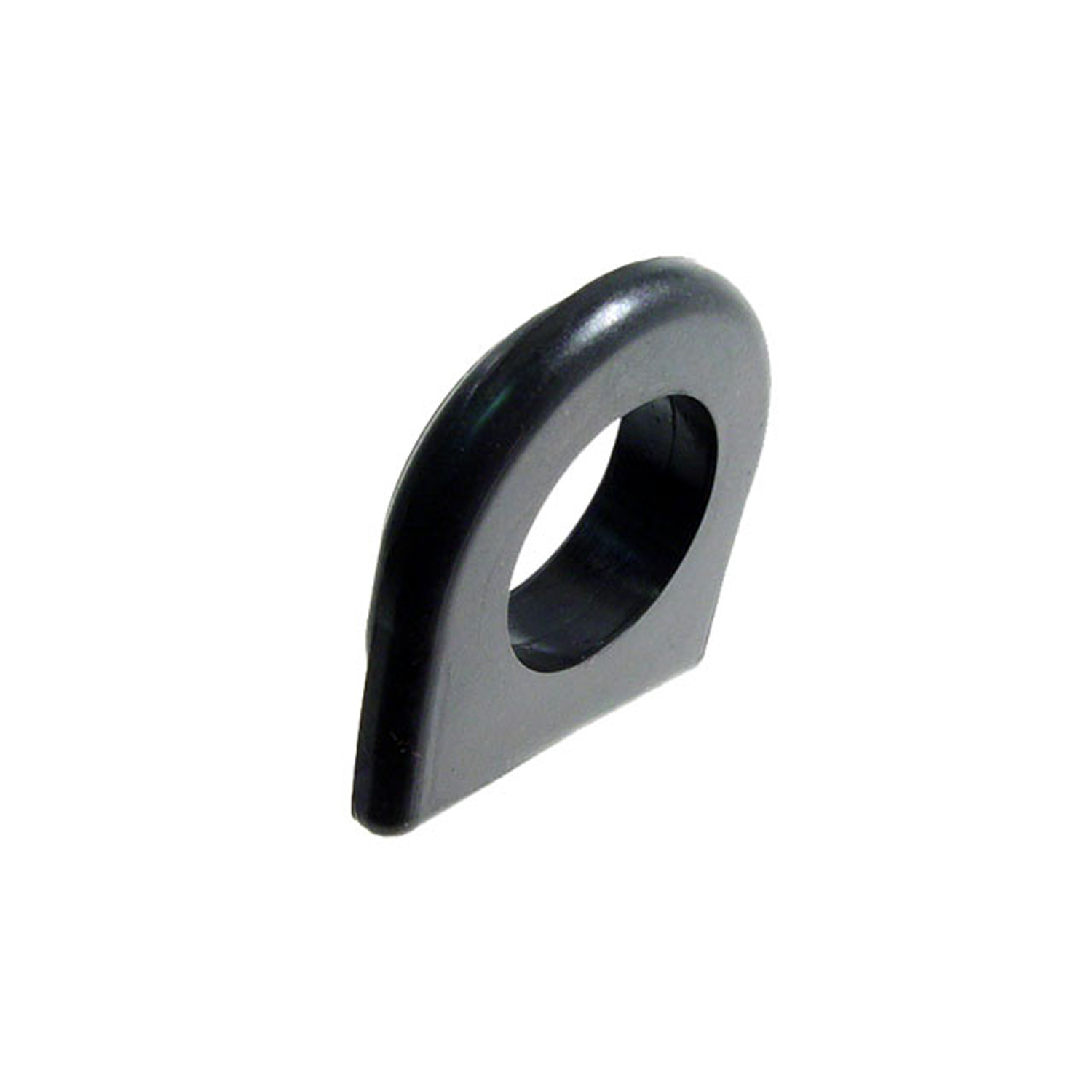 1964 Chevrolet Corvair Positive Crankcase Ventilation Grommet-RP 9Positive Crankcase Ventilation Grommet. 11/16" wide X 1-5/8" long, with 15/16" I.D. (Fits some models) Each
1964 Chevrolet Corvair Positive Crankcase Ventilation Grommet-RP 9Positive Crankcase Ventilation Grommet. 11/16" wide X 1-5/8" long, with 15/16" I.D. (Fits some models) Each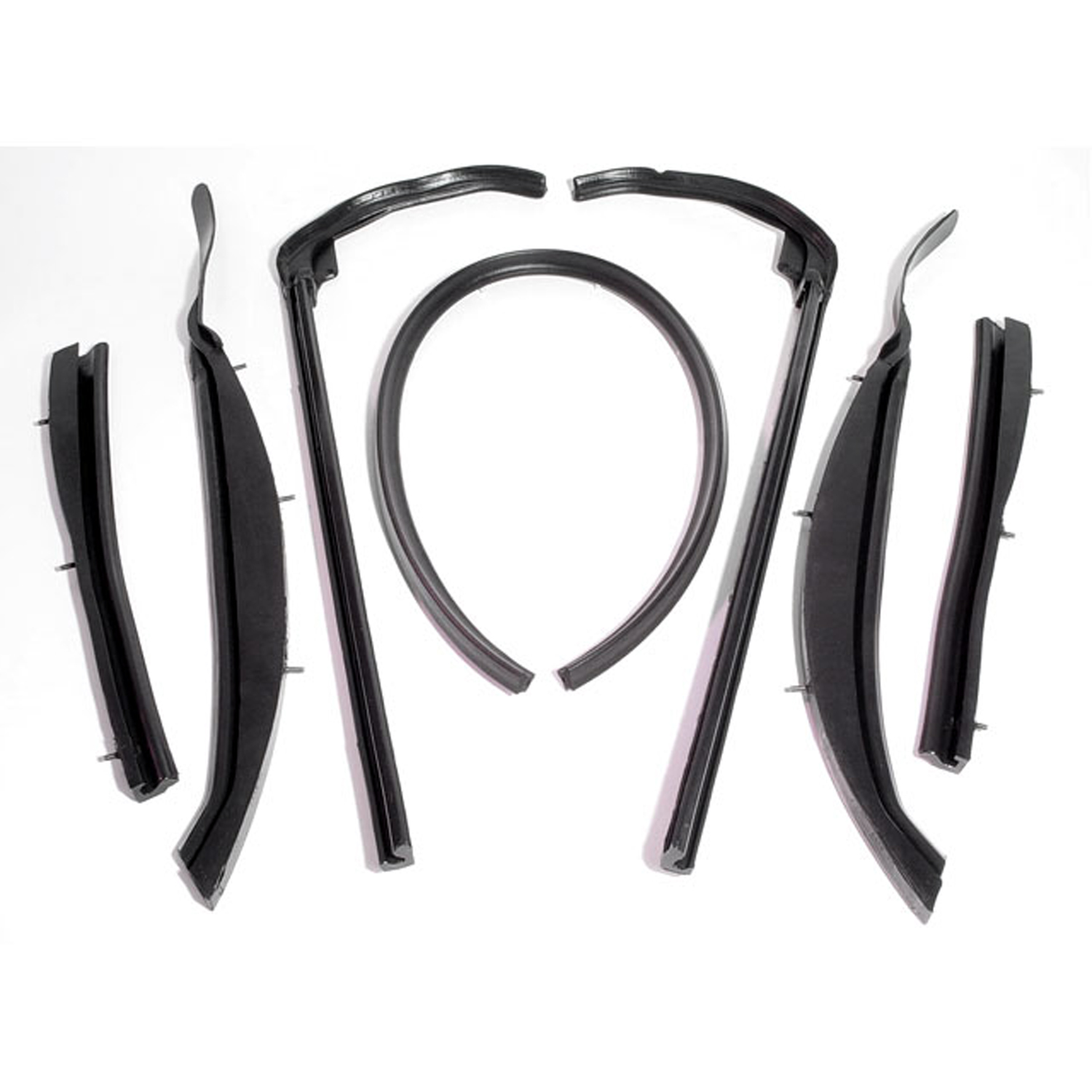 1964 Chevrolet Corvair Convertible Top Roof Rail Kit-RR 2005Convertible Top Roof Rail Kit. 7-Piece set includes all right and left side top rail seals and the windshield top header seal. Made with metal cores.
1964 Chevrolet Corvair Convertible Top Roof Rail Kit-RR 2005Convertible Top Roof Rail Kit. 7-Piece set includes all right and left side top rail seals and the windshield top header seal. Made with metal cores.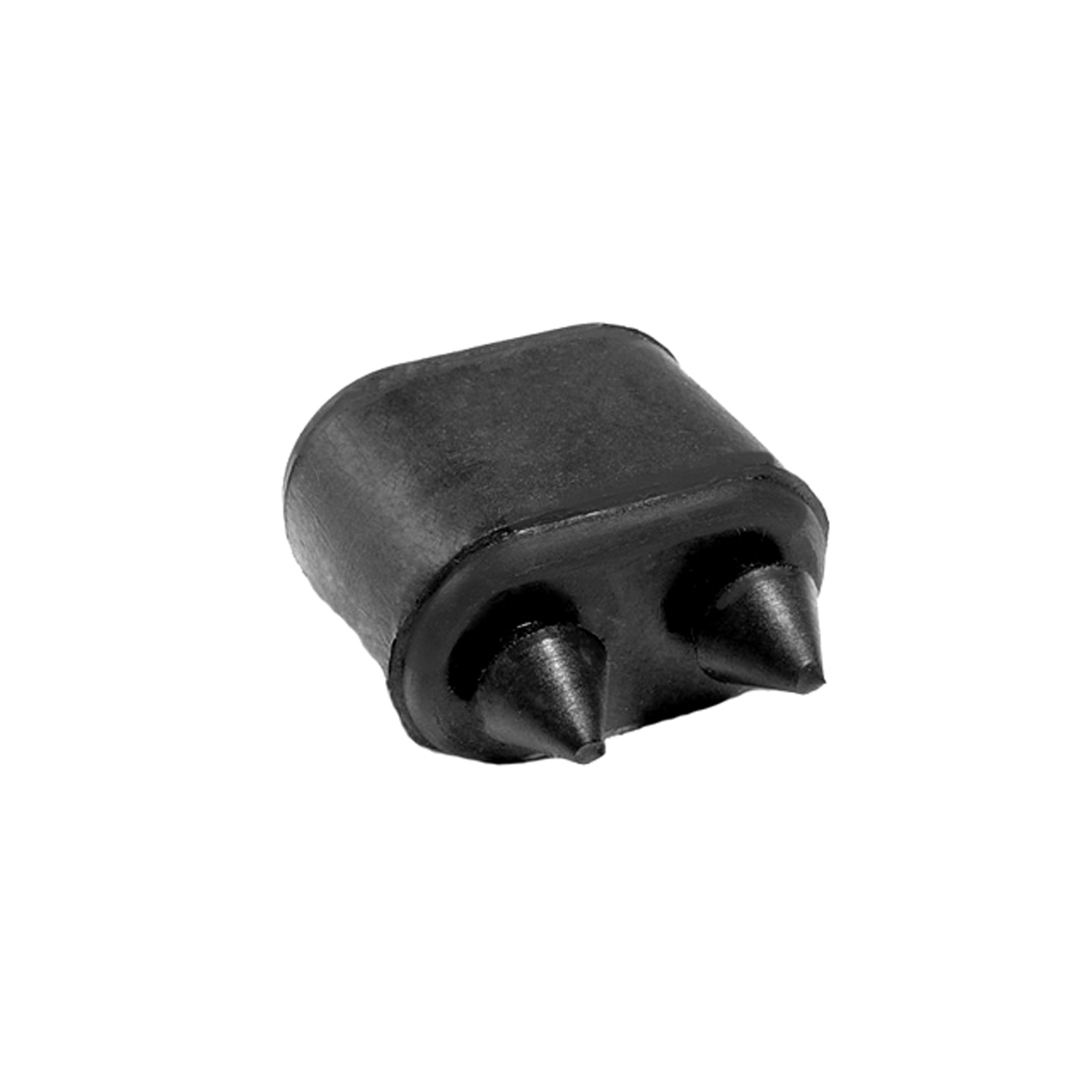 1964 Chevrolet Corvair Door Bumper, 57-74 GM Cars, Made with Twin Retainers, Each-SB 35Door Bumper, 57-74 GM Cars, made with twin retainers, Each. Measure 1-1/16" high X 19/32" wide X 1-1/32" long.
1964 Chevrolet Corvair Door Bumper, 57-74 GM Cars, Made with Twin Retainers, Each-SB 35Door Bumper, 57-74 GM Cars, made with twin retainers, Each. Measure 1-1/16" high X 19/32" wide X 1-1/32" long.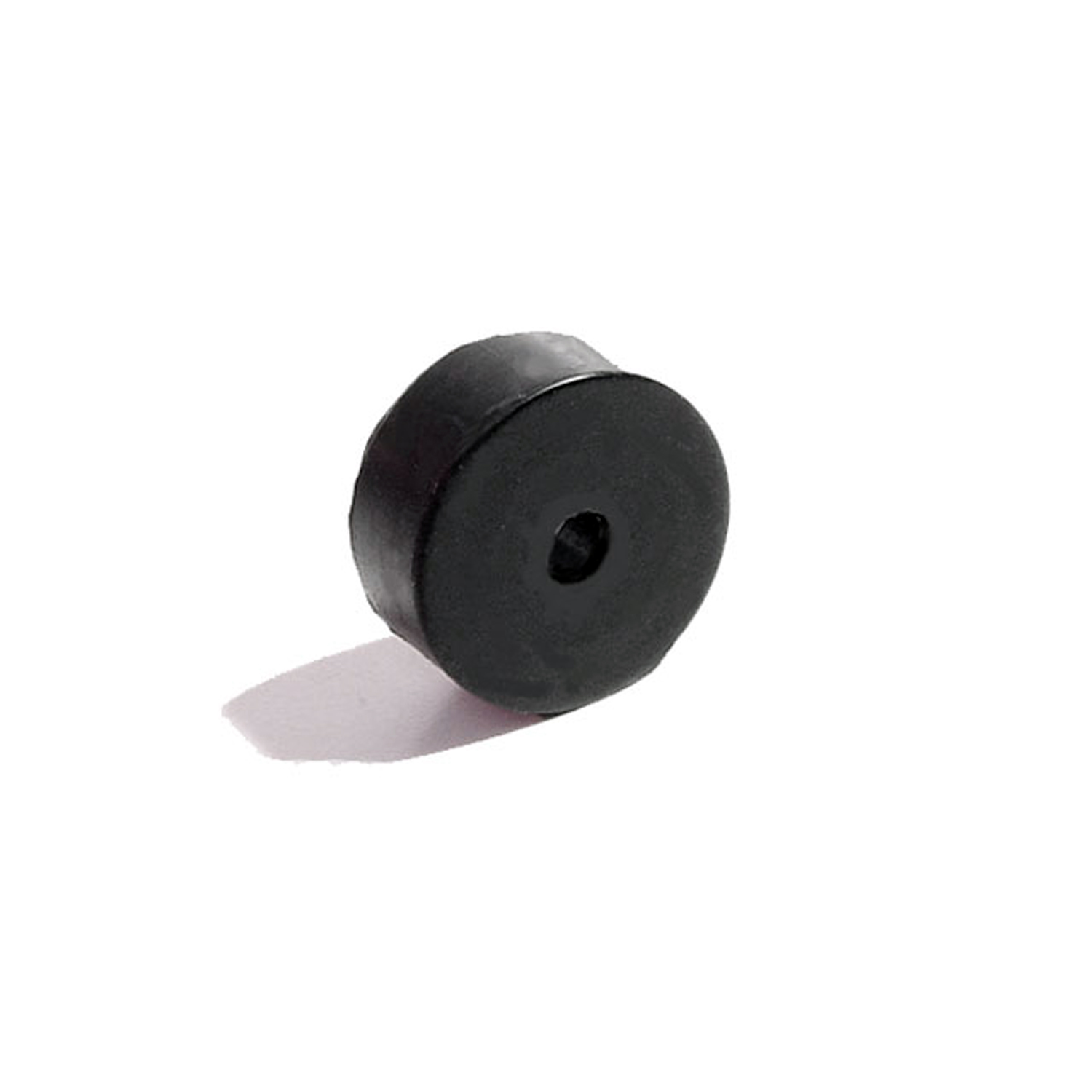 1964 Chevrolet Corvair Door, Trunk and Seat Bumper-SB 62Door, Trunk and Seat Bumper. Made with steel core, like original. 7/8" Diameter X 3/8" High. Each
1964 Chevrolet Corvair Door, Trunk and Seat Bumper-SB 62Door, Trunk and Seat Bumper. Made with steel core, like original. 7/8" Diameter X 3/8" High. Each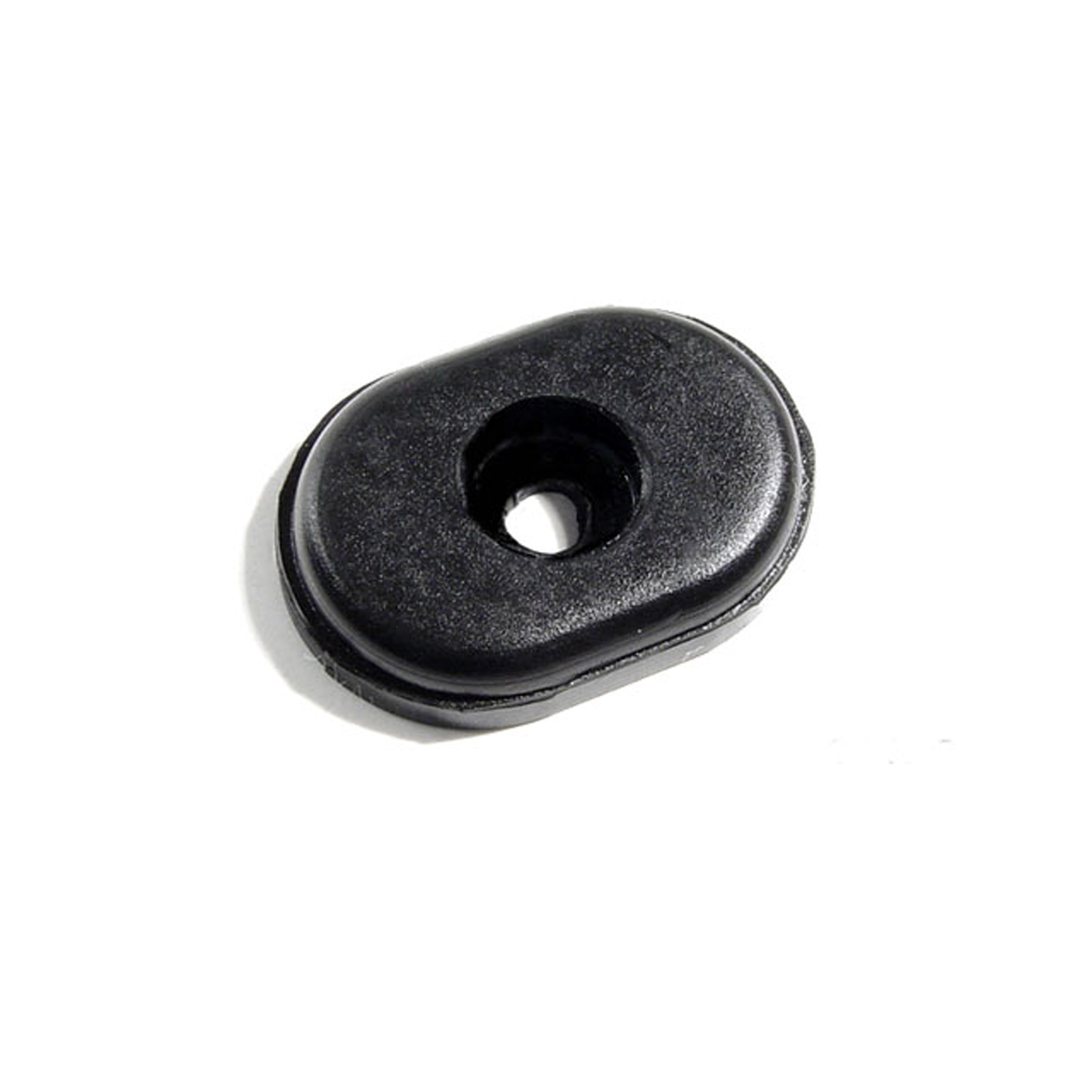 1964 Chevrolet Corvair Bucket Seat Bumper. 1-3/8" X 15/16". Each-SB 62-CBucket Seat Bumper. 1-3/8" X 15/16". Each
1964 Chevrolet Corvair Bucket Seat Bumper. 1-3/8" X 15/16". Each-SB 62-CBucket Seat Bumper. 1-3/8" X 15/16". Each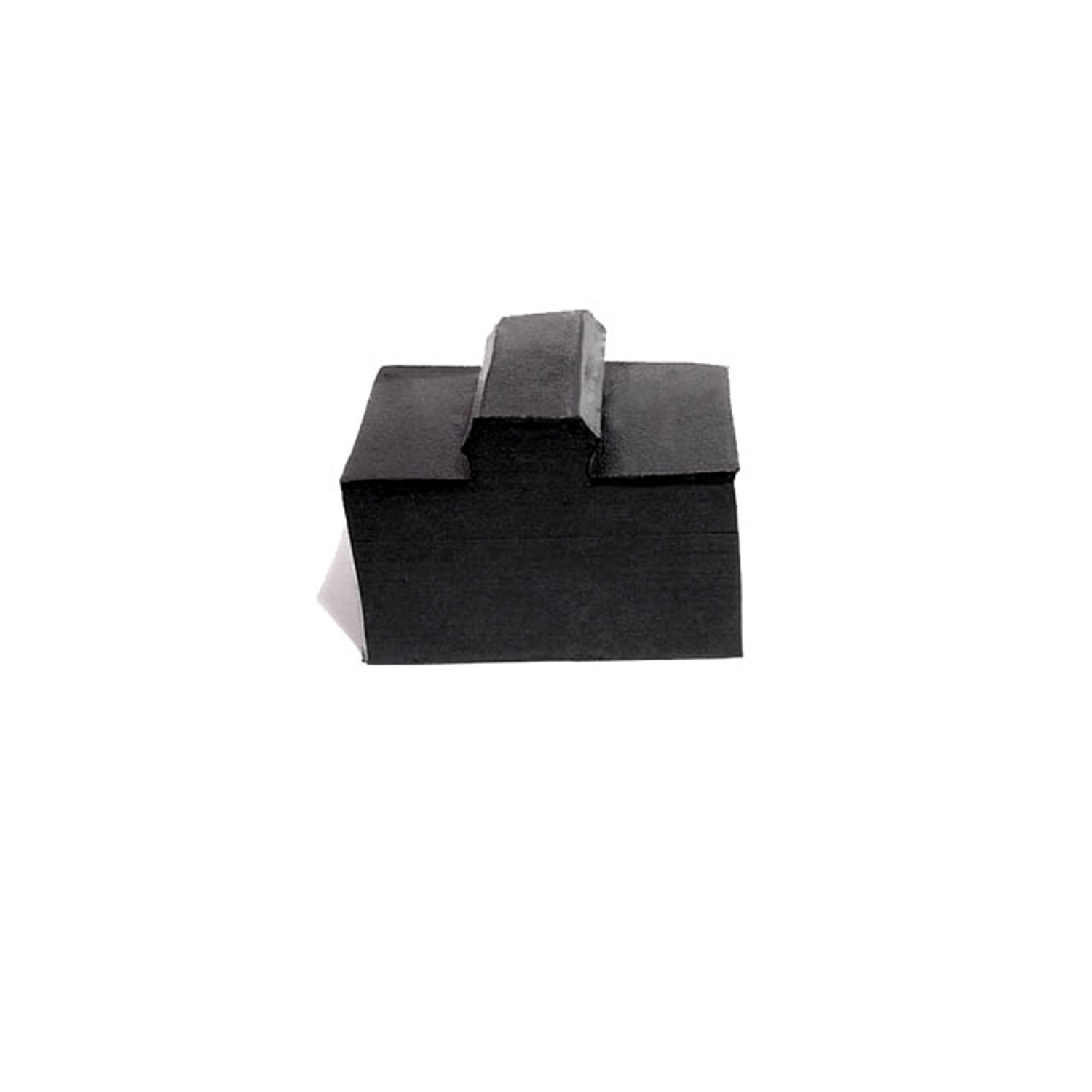 1964 Chevrolet Corvair Clutch Pedal Return Bumper-SB 64Clutch Pedal Return Bumper. 1-13/16" long X 13/16" wide X 7/8" high (center). Each
1964 Chevrolet Corvair Clutch Pedal Return Bumper-SB 64Clutch Pedal Return Bumper. 1-13/16" long X 13/16" wide X 7/8" high (center). Each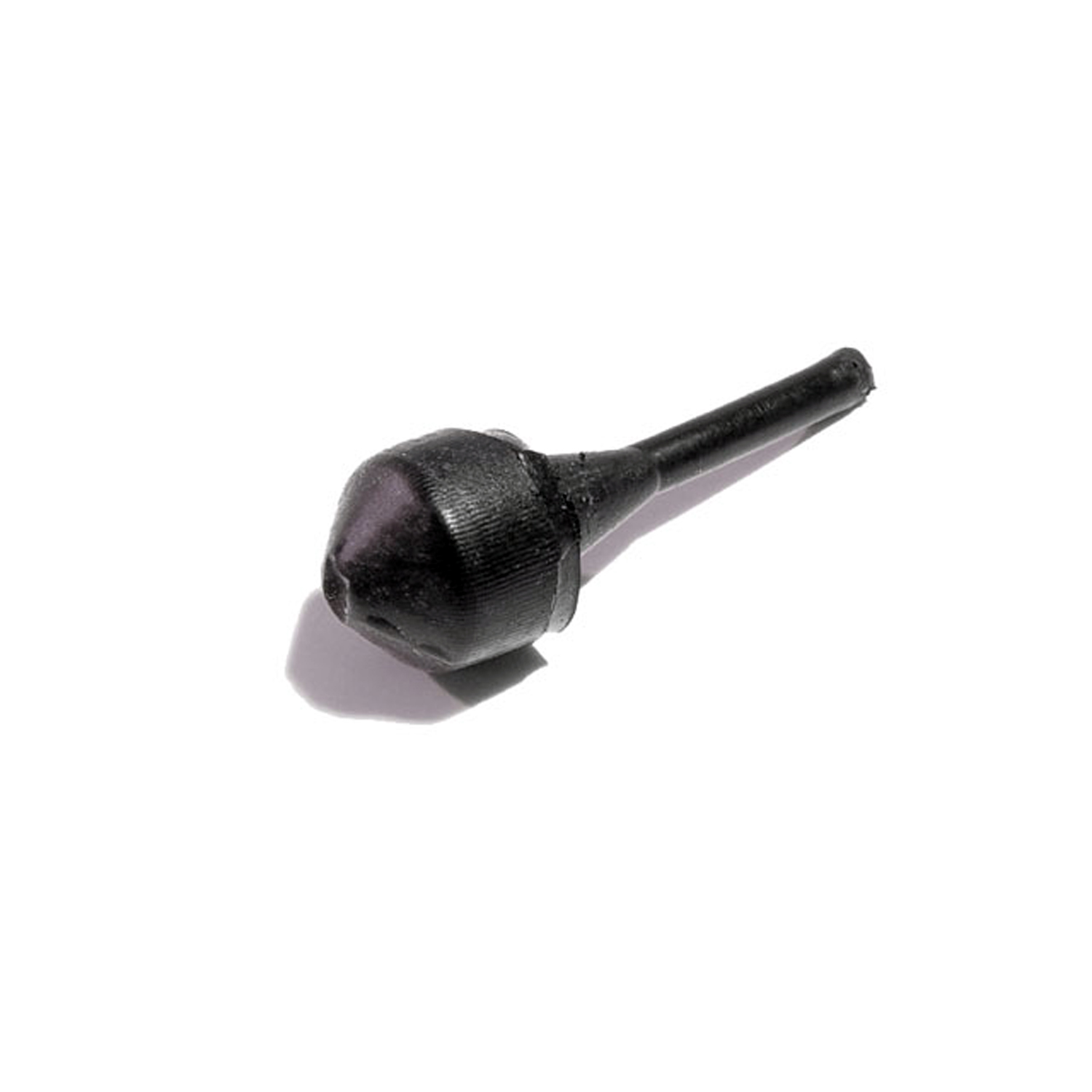 1964 Chevrolet Corvair Glove Box and Fuel Door Bumper. Fits 3/16" hole. Each-SB 78Glove Box and Fuel Door Bumper. Fits 3/16" hole. Each
1964 Chevrolet Corvair Glove Box and Fuel Door Bumper. Fits 3/16" hole. Each-SB 78Glove Box and Fuel Door Bumper. Fits 3/16" hole. Each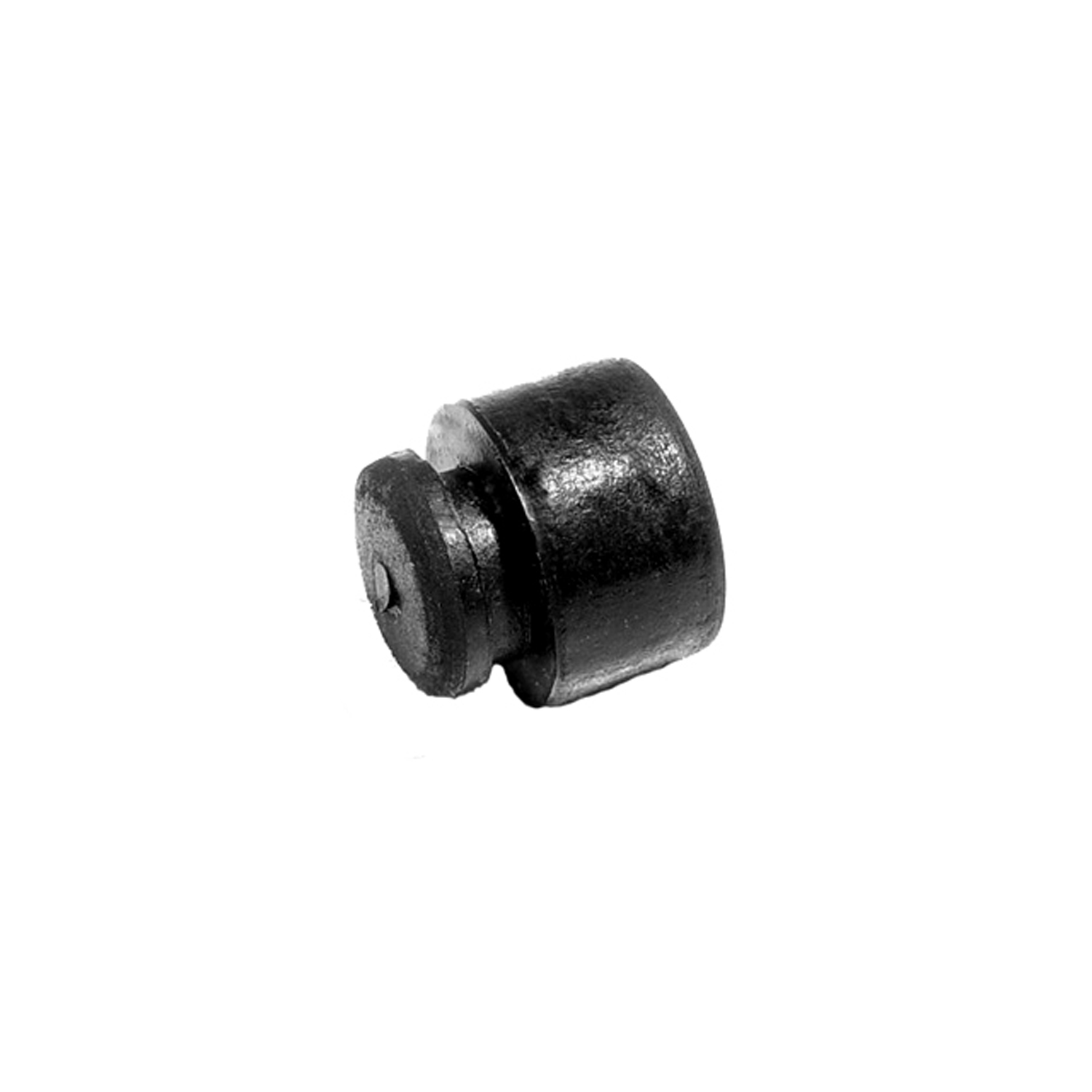 1964 Chevrolet Corvair License Plate Bumper. Fits a 1/4" hole. Each-SB 82License Plate Bumper. Fits a 1/4" hole. Each
1964 Chevrolet Corvair License Plate Bumper. Fits a 1/4" hole. Each-SB 82License Plate Bumper. Fits a 1/4" hole. Each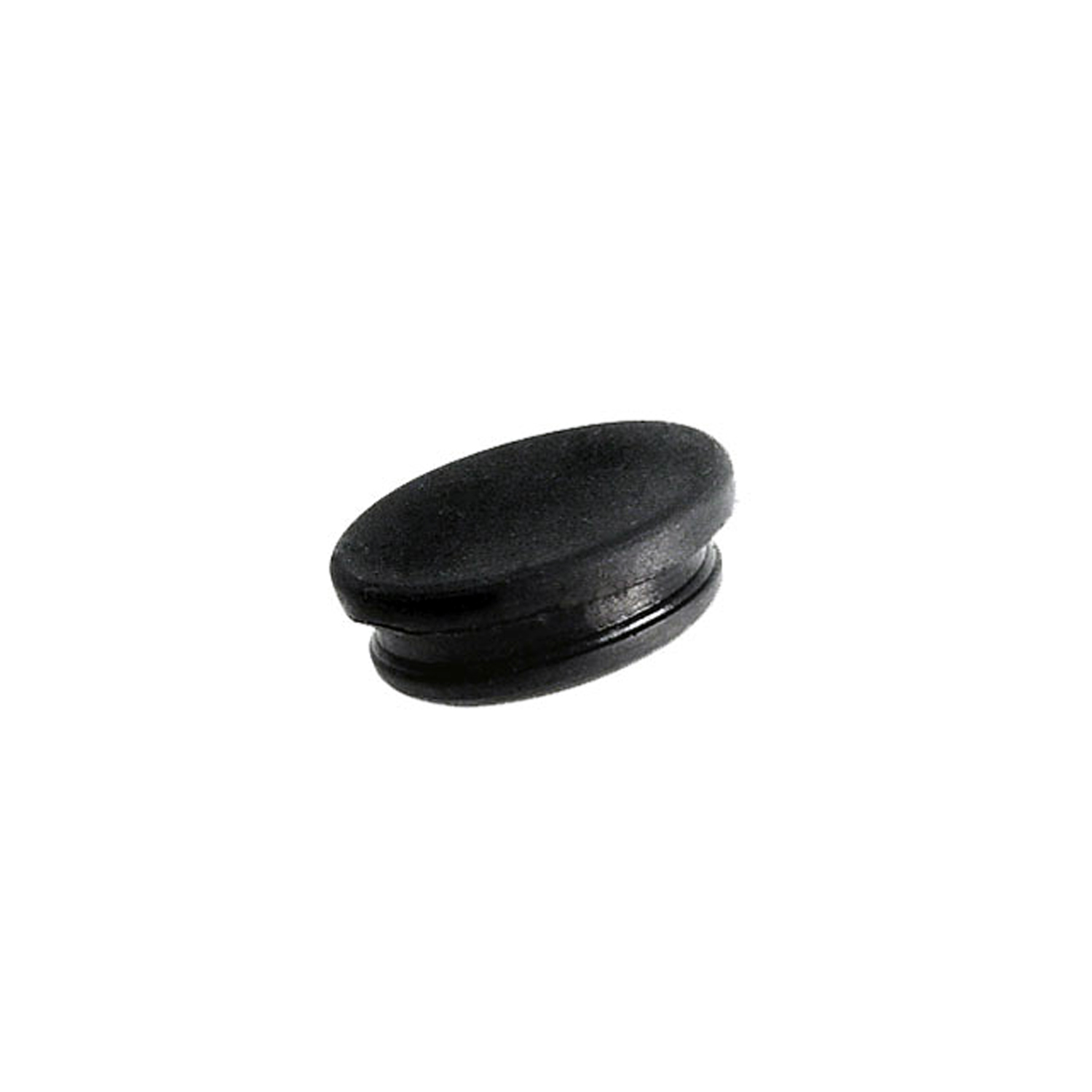 1964 Chevrolet Corvair Rocker Arm Cover. Neoprene plug. Fits 1" hole. Each-SM 66Rocker Arm Cover. Neoprene plug. Fits 1" hole. Each
1964 Chevrolet Corvair Rocker Arm Cover. Neoprene plug. Fits 1" hole. Each-SM 66Rocker Arm Cover. Neoprene plug. Fits 1" hole. Each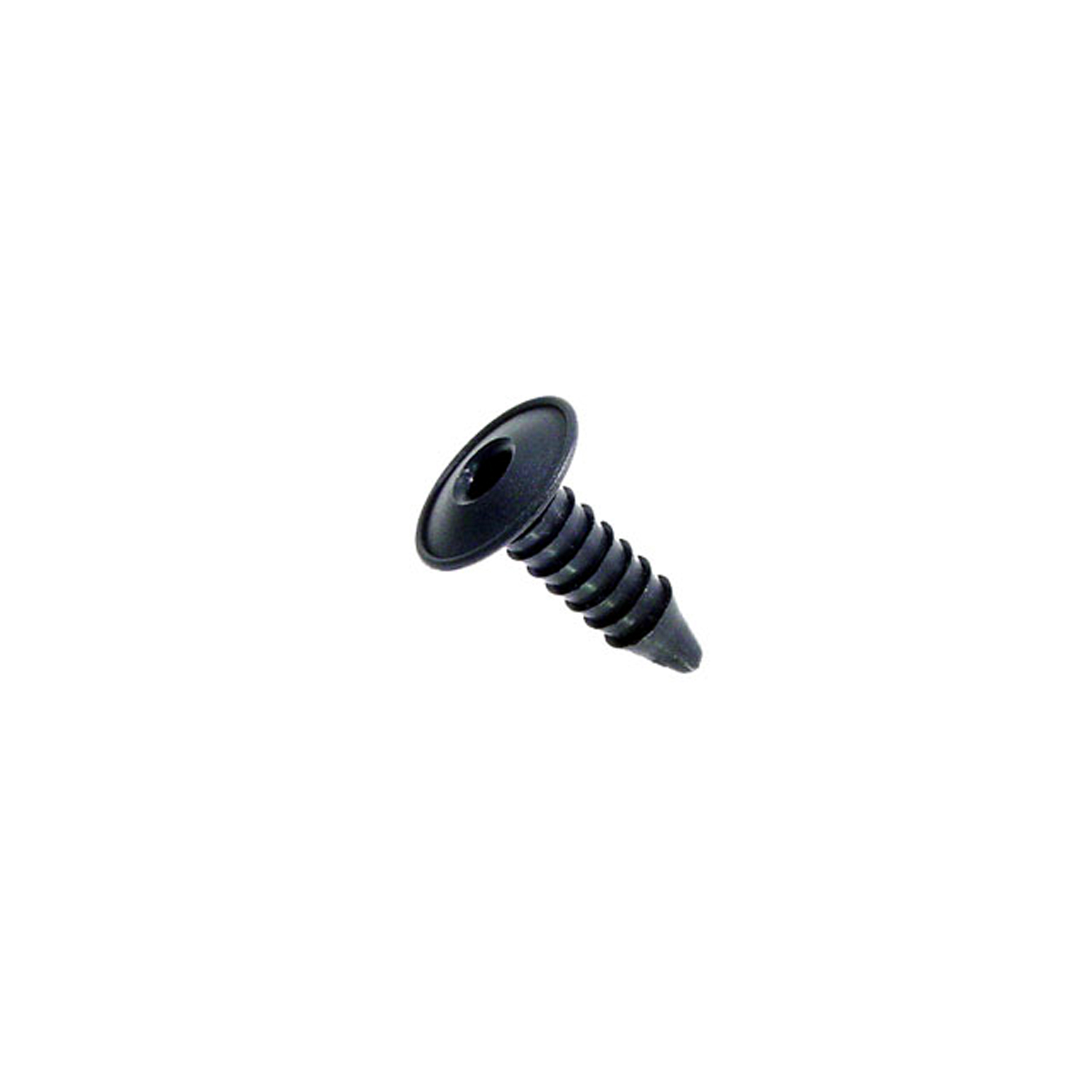 1964 Chevrolet Corvair Firewall insulation fastener. 1 in. dia. W head. 1-1/2 in. L-SM 80-AFirewall insulation fastener. 1 in. dia. W head. 1-1/2 in. L. Replaces OEM#'s (GM) 7642589 and (AMC) 4001934. Black. Each.
1964 Chevrolet Corvair Firewall insulation fastener. 1 in. dia. W head. 1-1/2 in. L-SM 80-AFirewall insulation fastener. 1 in. dia. W head. 1-1/2 in. L. Replaces OEM#'s (GM) 7642589 and (AMC) 4001934. Black. Each.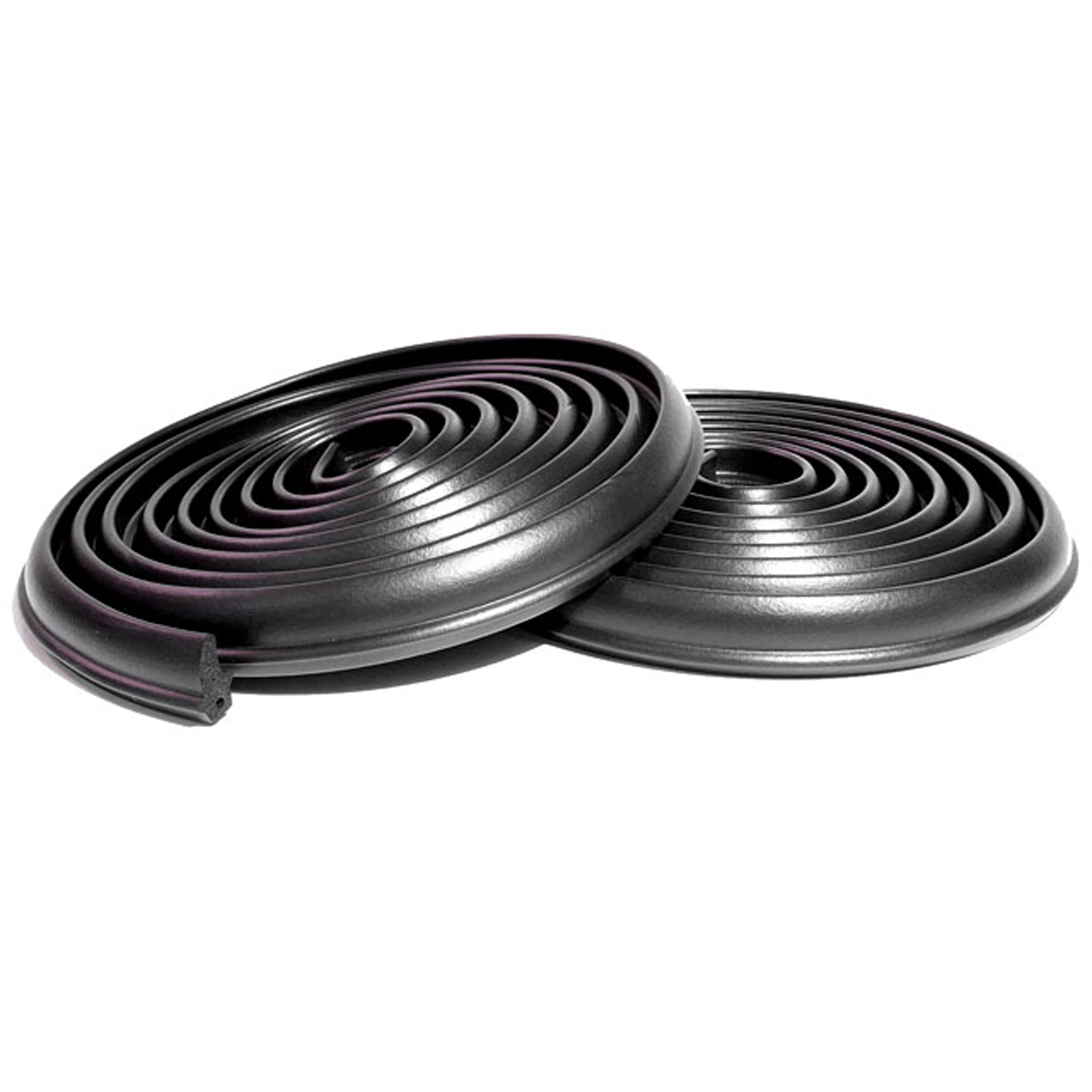 1964 Chevrolet Corvair Hood and Trunk Seal. 174" Long Each. Pair-TK 30Hood and Trunk Seal. 174" Long Each. Pair
1964 Chevrolet Corvair Hood and Trunk Seal. 174" Long Each. Pair-TK 30Hood and Trunk Seal. 174" Long Each. Pair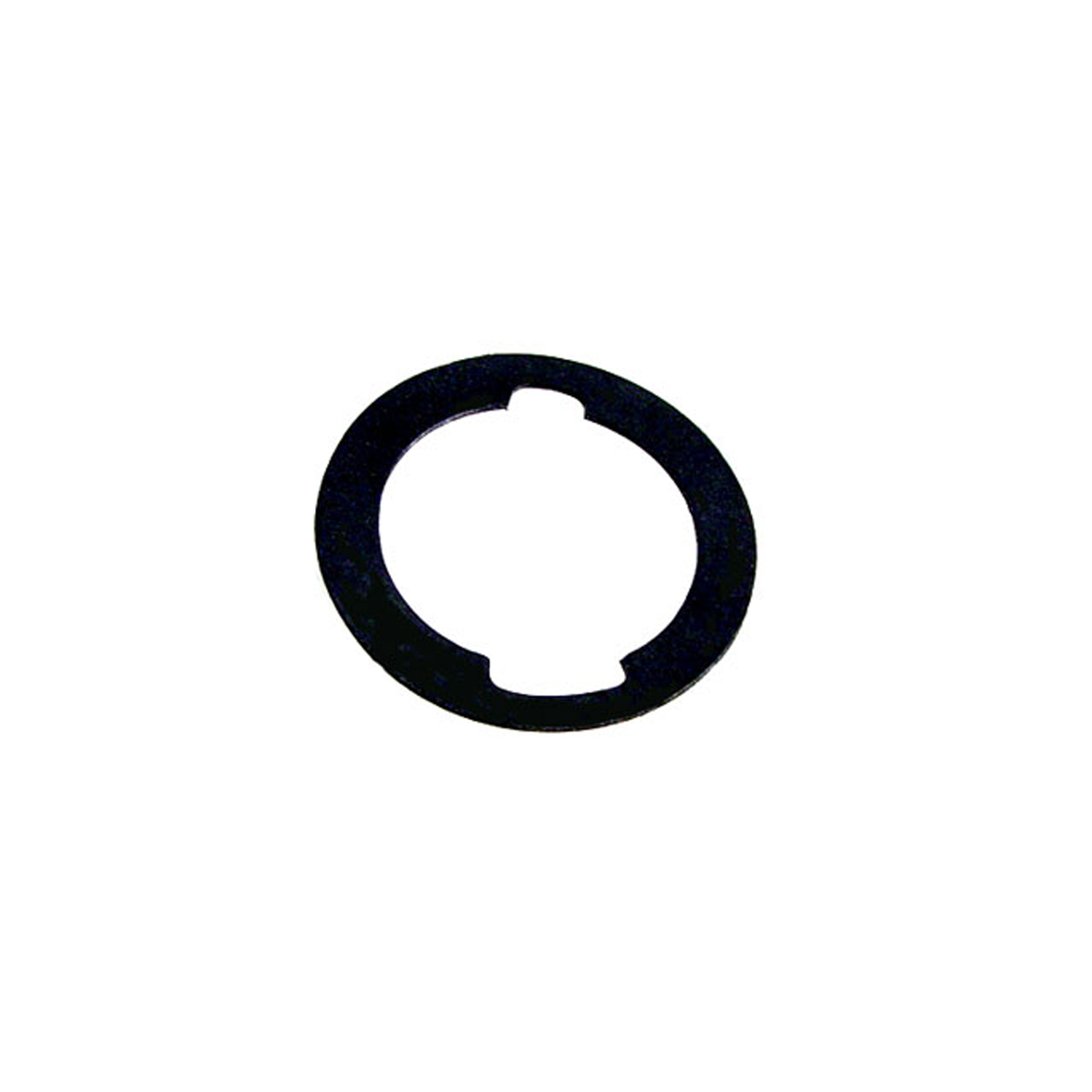 1964 Chevrolet Corvair Unbeaded Door and Trunk Lock Gasket. 1-3/16" O.D., 7/8" I.D-UM 1600-100Unbeaded Door and Trunk Lock Gasket. 1-3/16" O.D., 7/8" I.D. Each
1964 Chevrolet Corvair Unbeaded Door and Trunk Lock Gasket. 1-3/16" O.D., 7/8" I.D-UM 1600-100Unbeaded Door and Trunk Lock Gasket. 1-3/16" O.D., 7/8" I.D. Each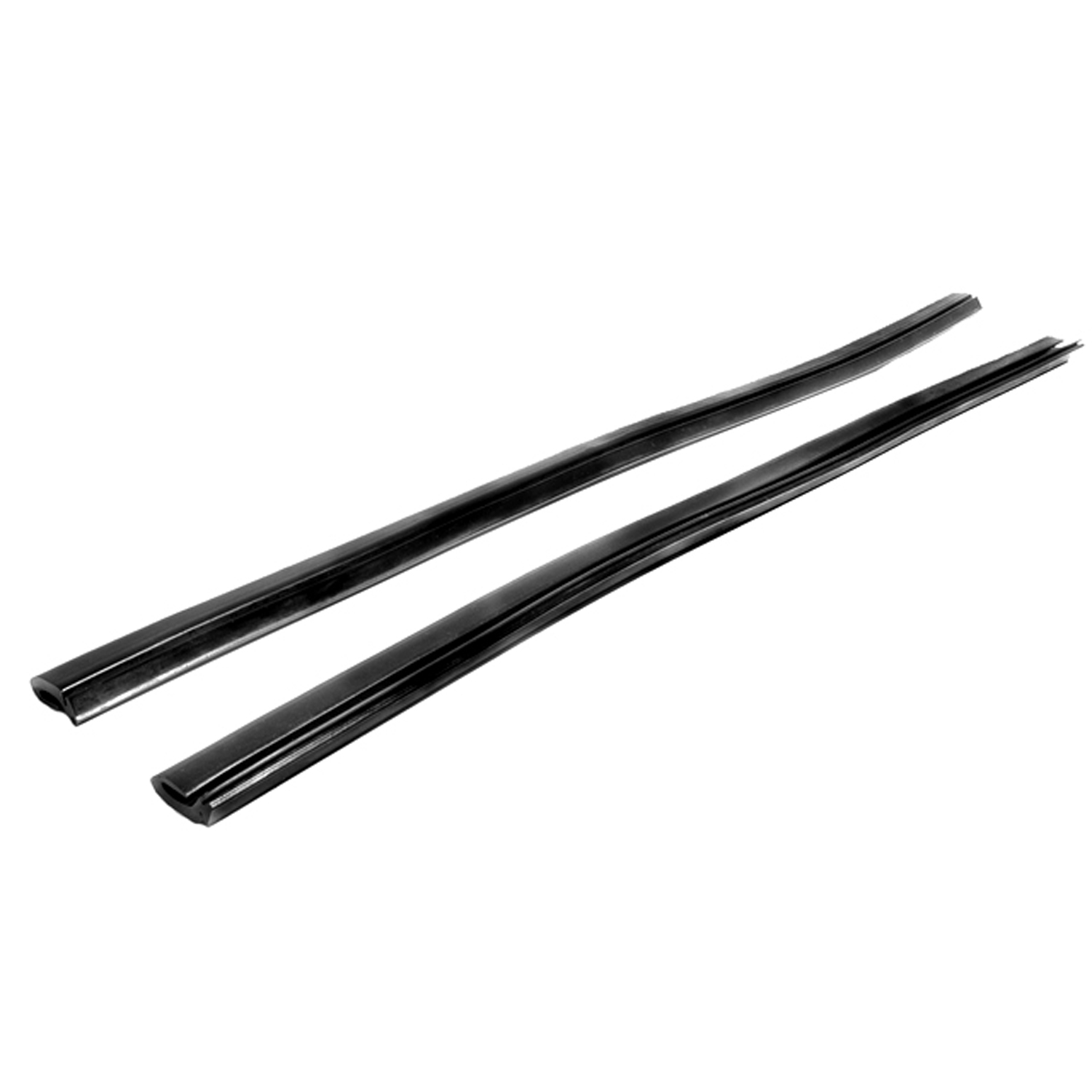 1964 Chevrolet Corvair Rear Side Roll-Up Window Seal, for Hardtops and Convertibles-VS 3Rear Side Roll-Up Window Seal, for Hardtops and Convertibles. Two 20" sections slide into metal track. No steel insert. Pair
1964 Chevrolet Corvair Rear Side Roll-Up Window Seal, for Hardtops and Convertibles-VS 3Rear Side Roll-Up Window Seal, for Hardtops and Convertibles. Two 20" sections slide into metal track. No steel insert. Pair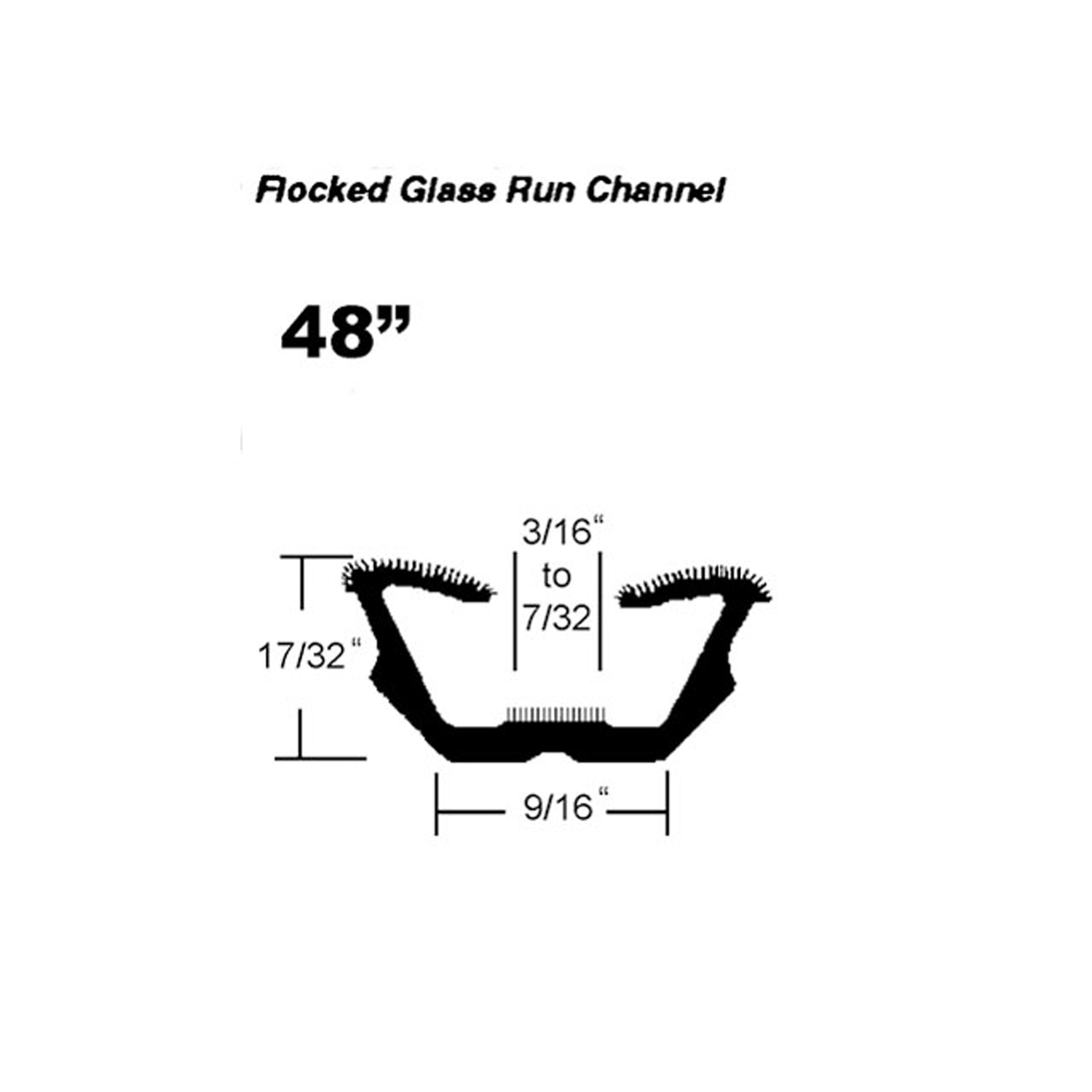 1964 Chevrolet Corvair Flocked Window Channel. 48" Piece. Each-WC 22-48Flocked Window Channel. 48" Piece. Each
1964 Chevrolet Corvair Flocked Window Channel. 48" Piece. Each-WC 22-48Flocked Window Channel. 48" Piece. Each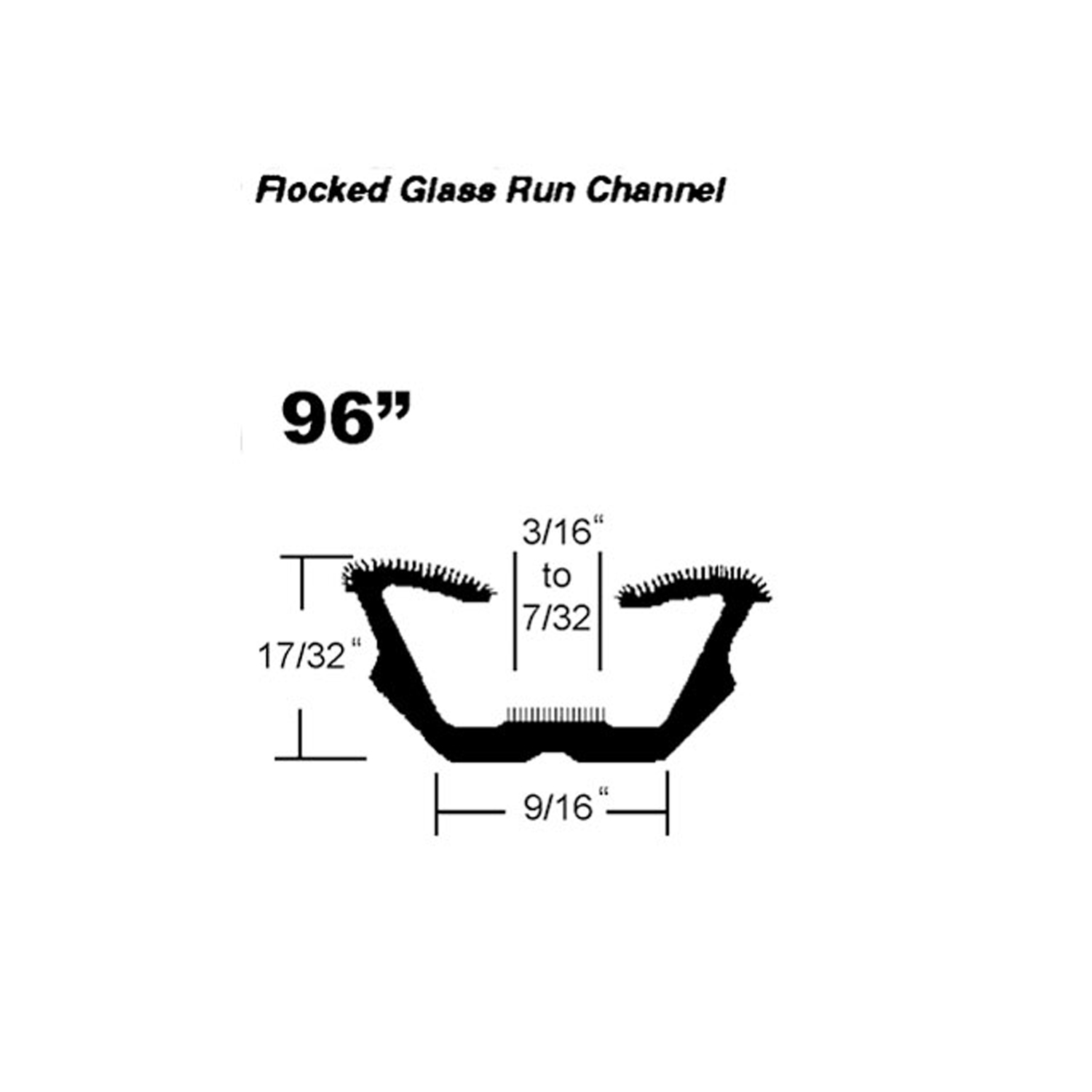 1964 Chevrolet Corvair Flocked Window Channel. 96" Piece. Each-WC 22-96Flocked Window Channel. 96" Piece. Each
1964 Chevrolet Corvair Flocked Window Channel. 96" Piece. Each-WC 22-96Flocked Window Channel. 96" Piece. Each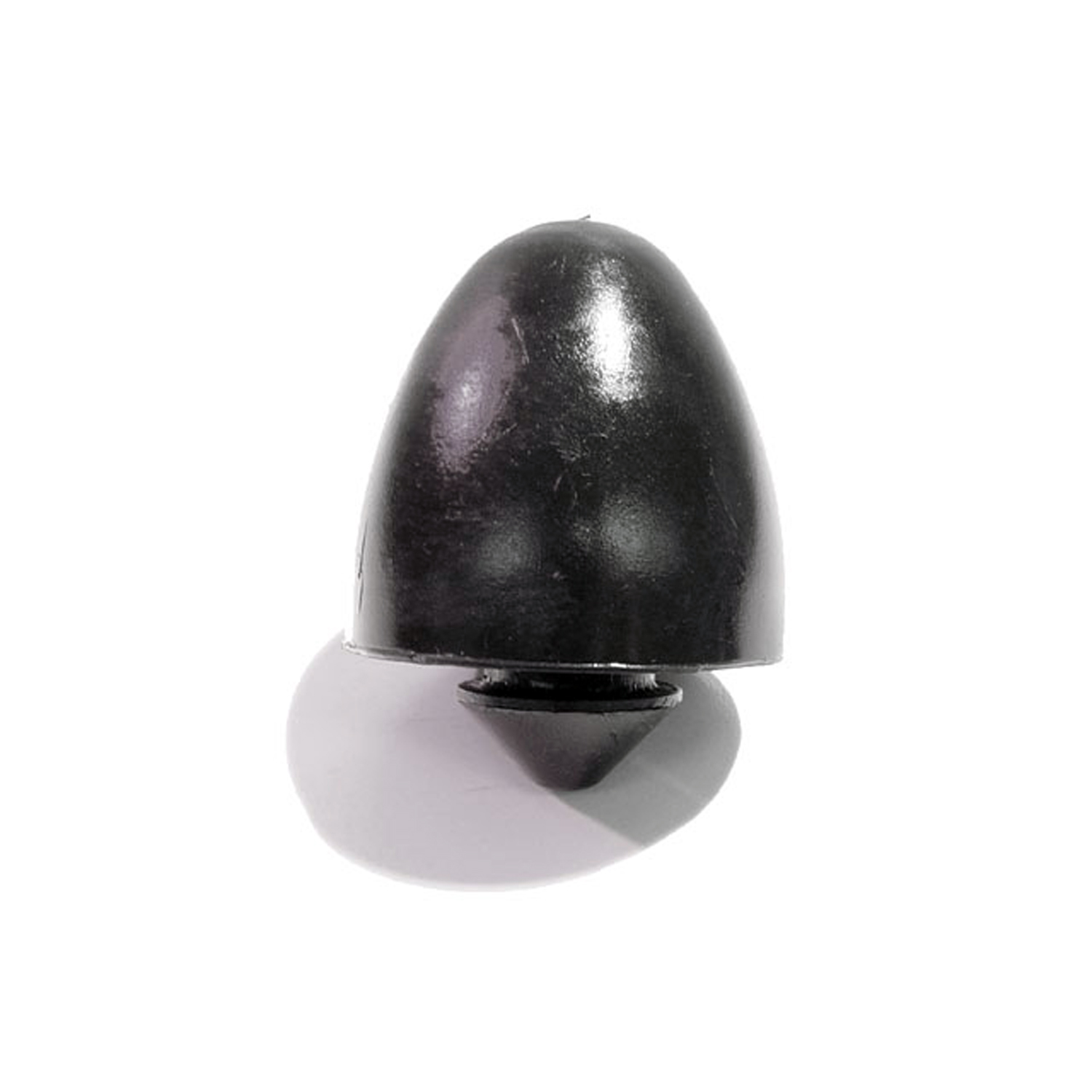 1964 Chevrolet Corvair Front Suspension Bumper. For steering knuckle support-XB 20Front Suspension Bumper. For steering knuckle support. 1-3/8" high. Each
1964 Chevrolet Corvair Front Suspension Bumper. For steering knuckle support-XB 20Front Suspension Bumper. For steering knuckle support. 1-3/8" high. EachWhy Choose Metro?
For over 100 years, Metro Moulded Parts has been the pinnacle of quality in classic car restoration parts. Our commitment to precision and authenticity in every component ensures a perfect fit and an OEM-level appearance.
- Expert Craftsmanship & Quality: Each part is a testament to our dedication to reliability and perfection, crafted from original designs and thoroughly tested.
- Advanced Technology: We use cutting-edge techniques to create flawless, long-lasting parts that surpass others in performance.
- SuperSoft Sponge – The Ultimate Door Seal: Not only are our door seals 30% softer than competitors', but they're also guaranteed to never leak. They effectively reduce wind and road noise, enhancing your classic car's comfort and driving experience.
- Proudly American: Our parts are a product of American craftsmanship, made in the USA with a spirit of excellence and heritage.
- Unrivaled Warranty: We back our products with a 30-year industry-leading warranty, a testament to our confidence in their quality.
Join us in preserving the legacy of classic cars with parts that are crafted for perfection, not just made.

